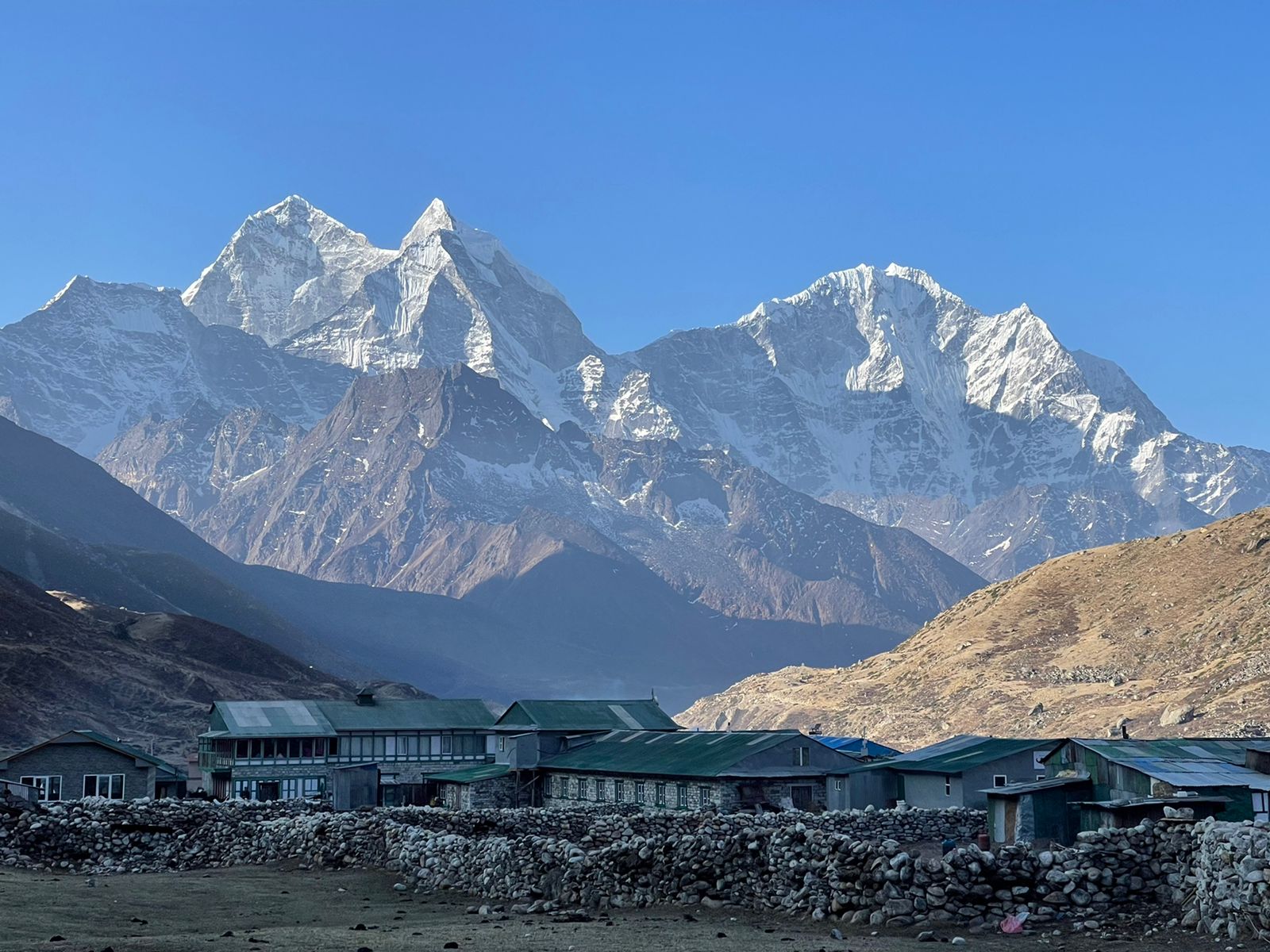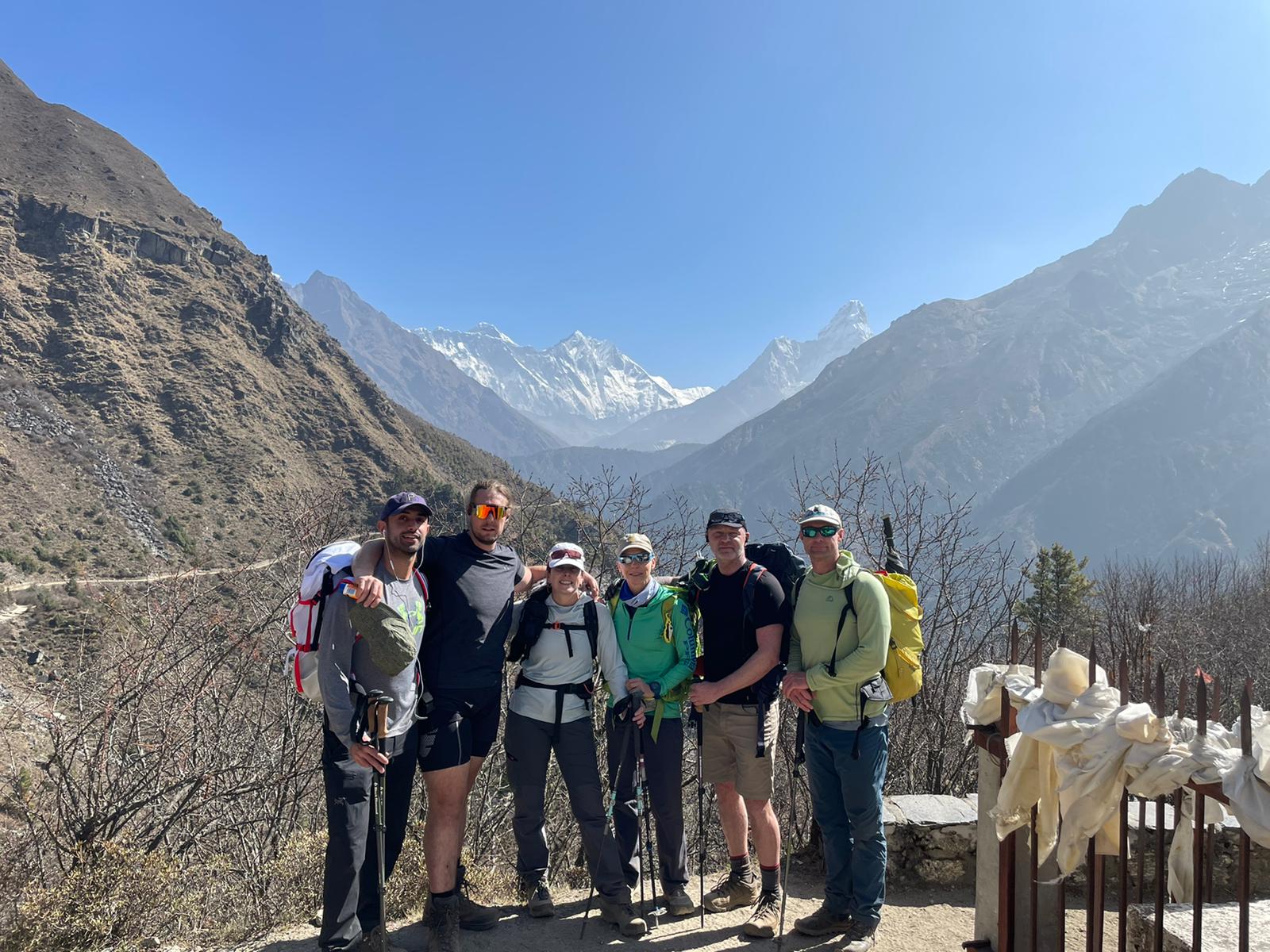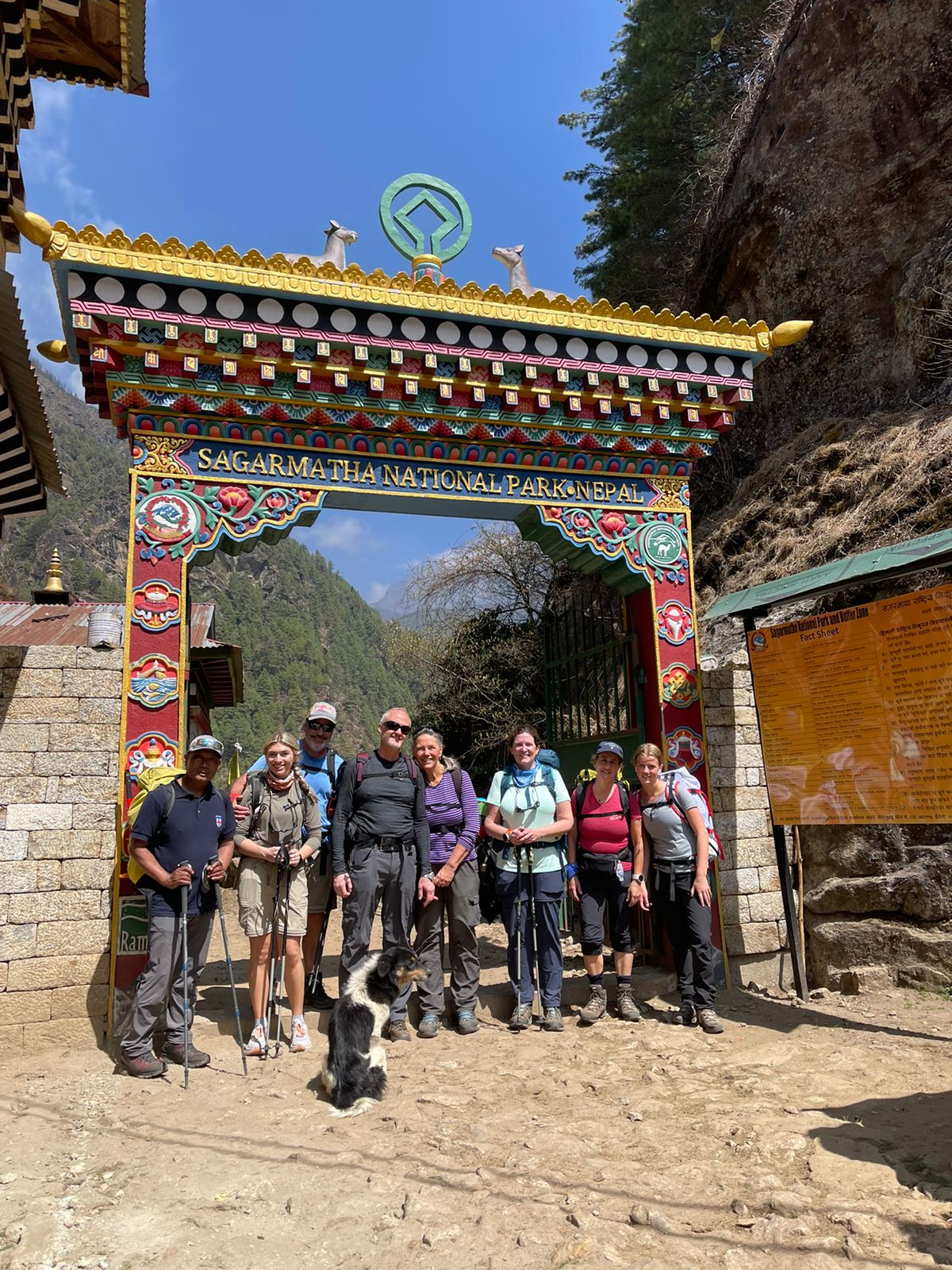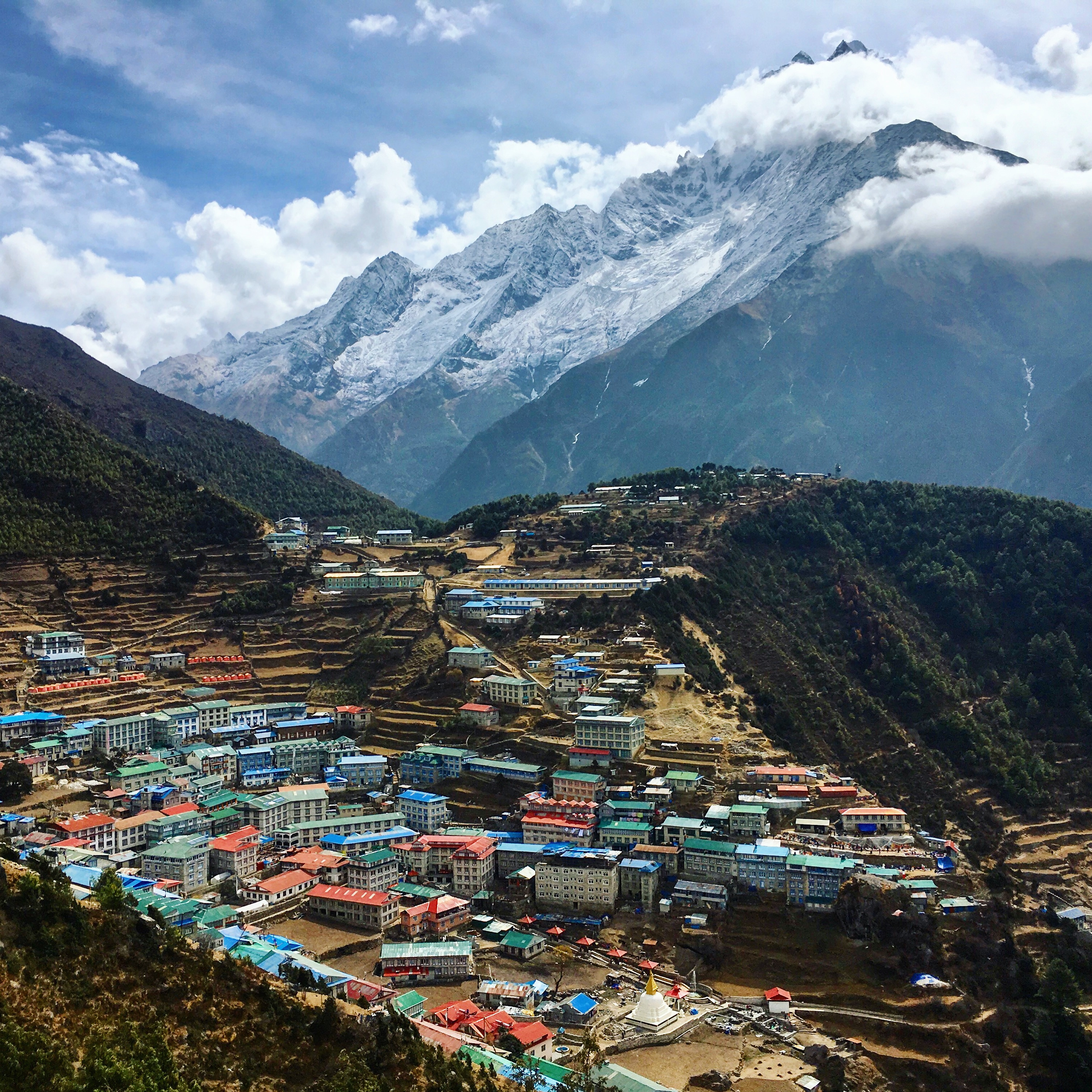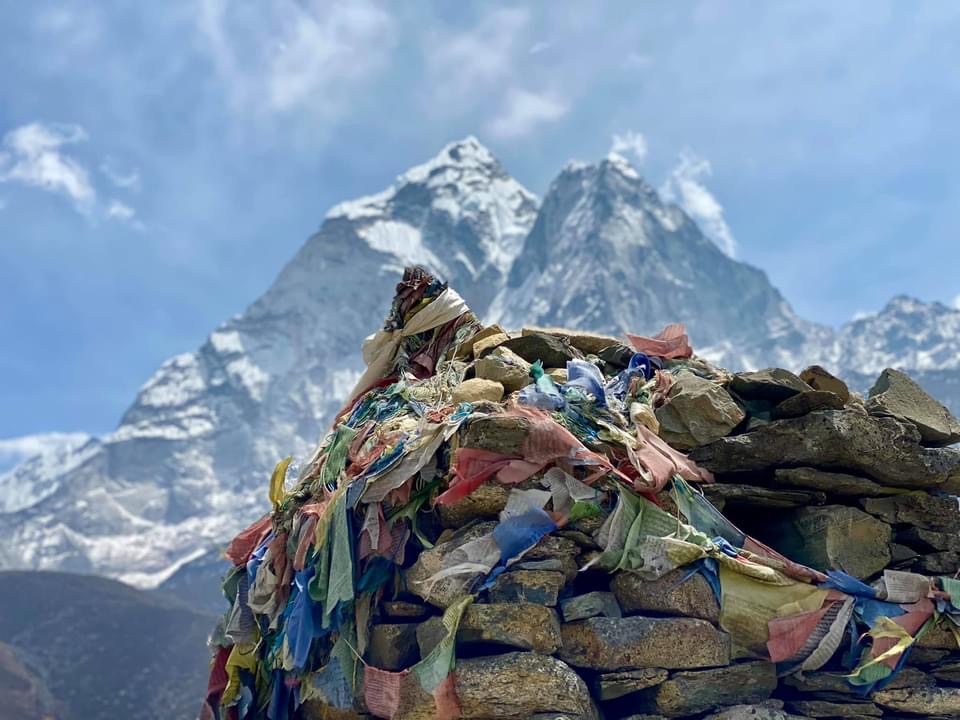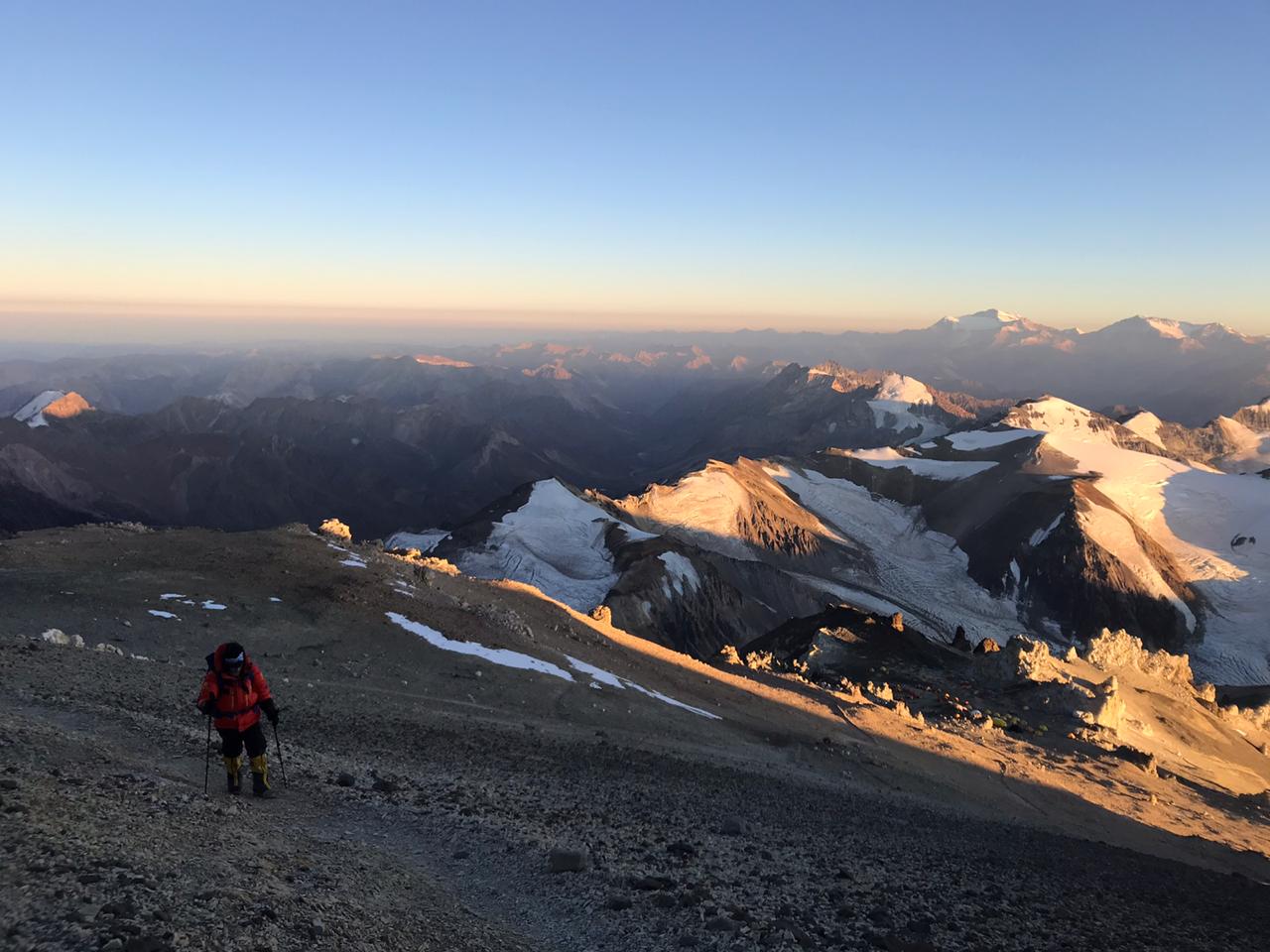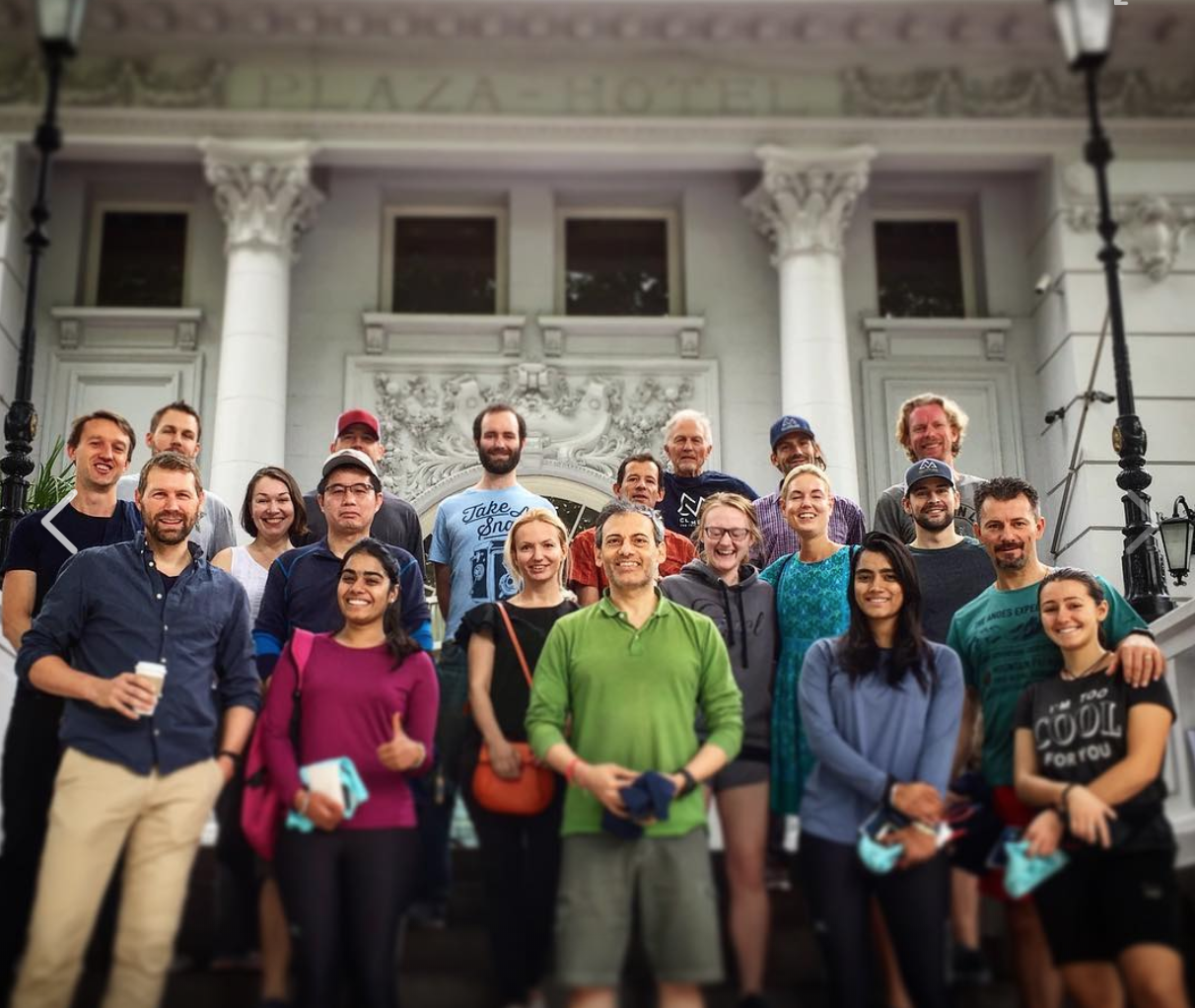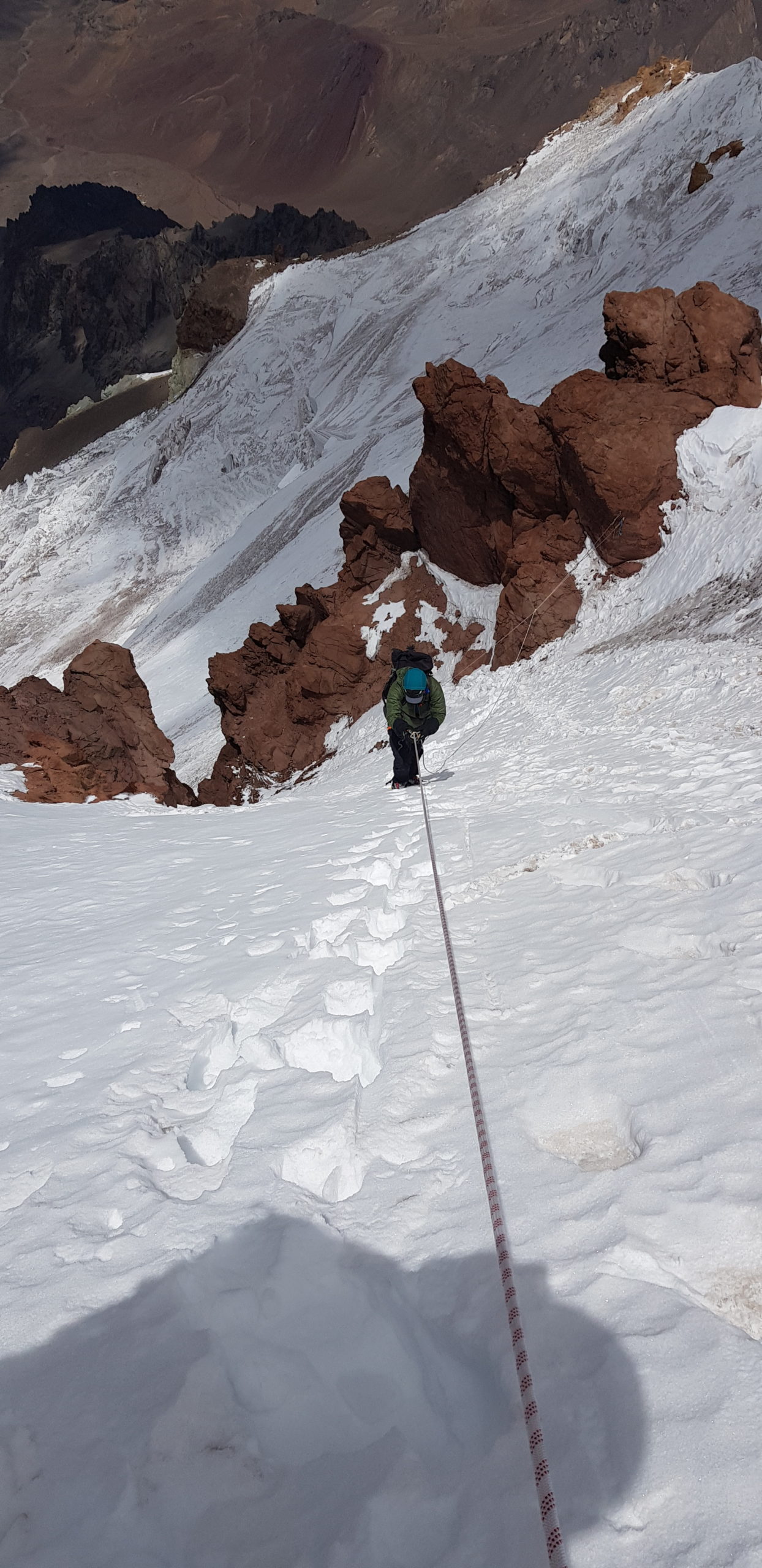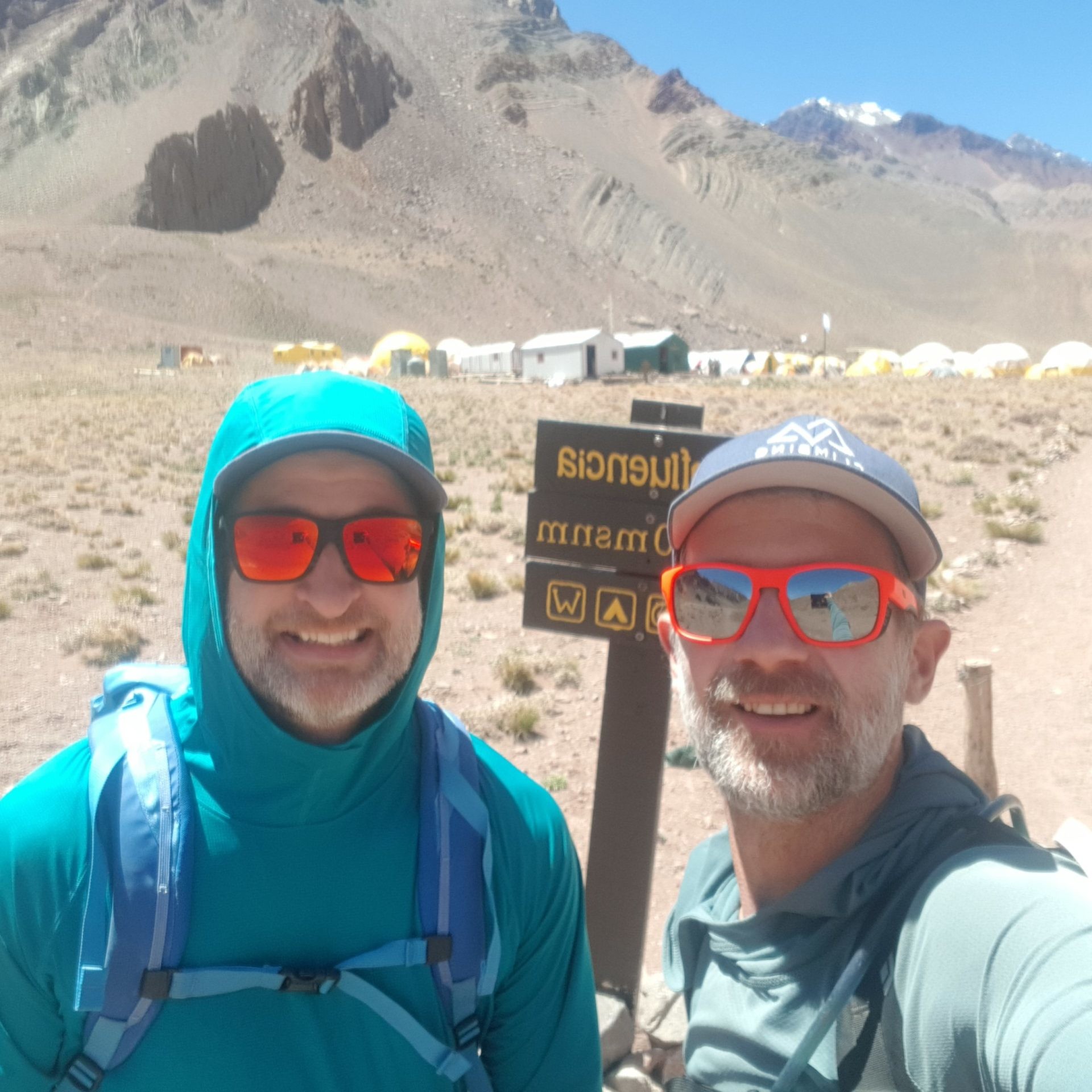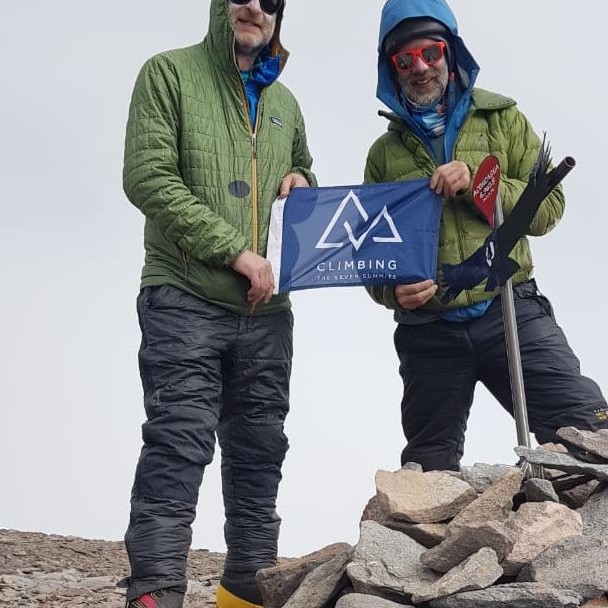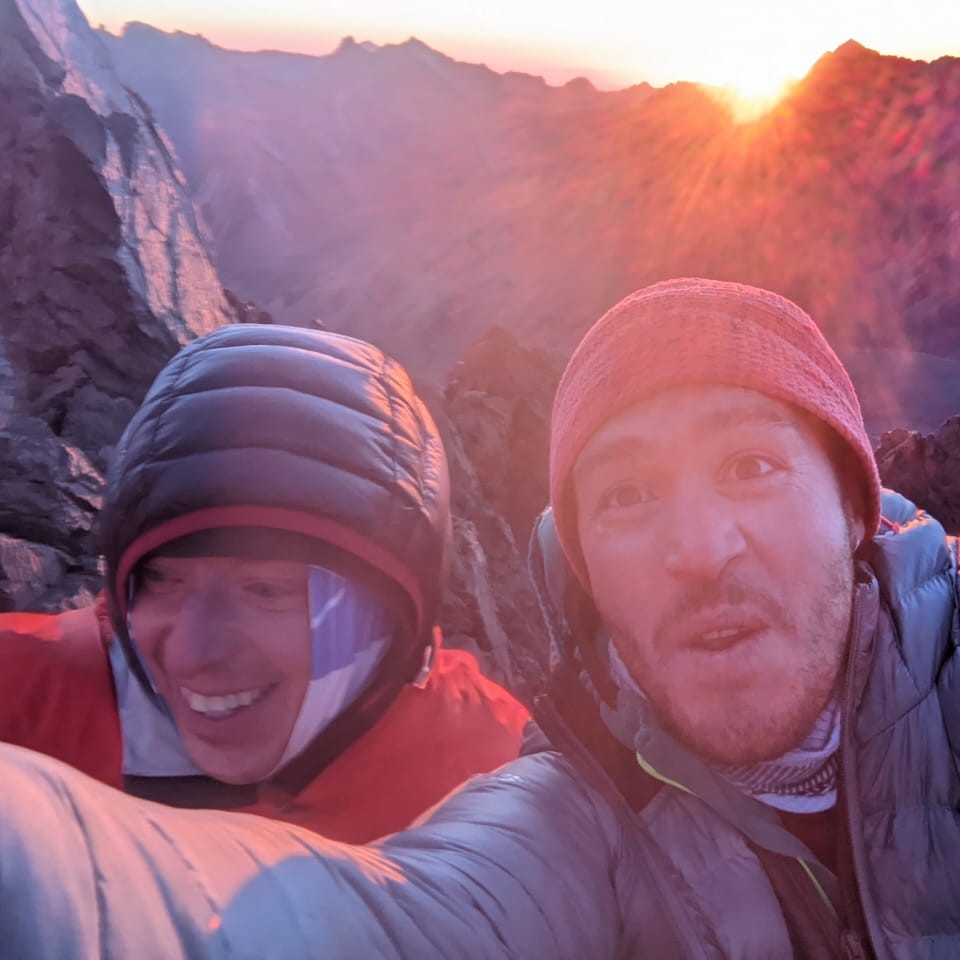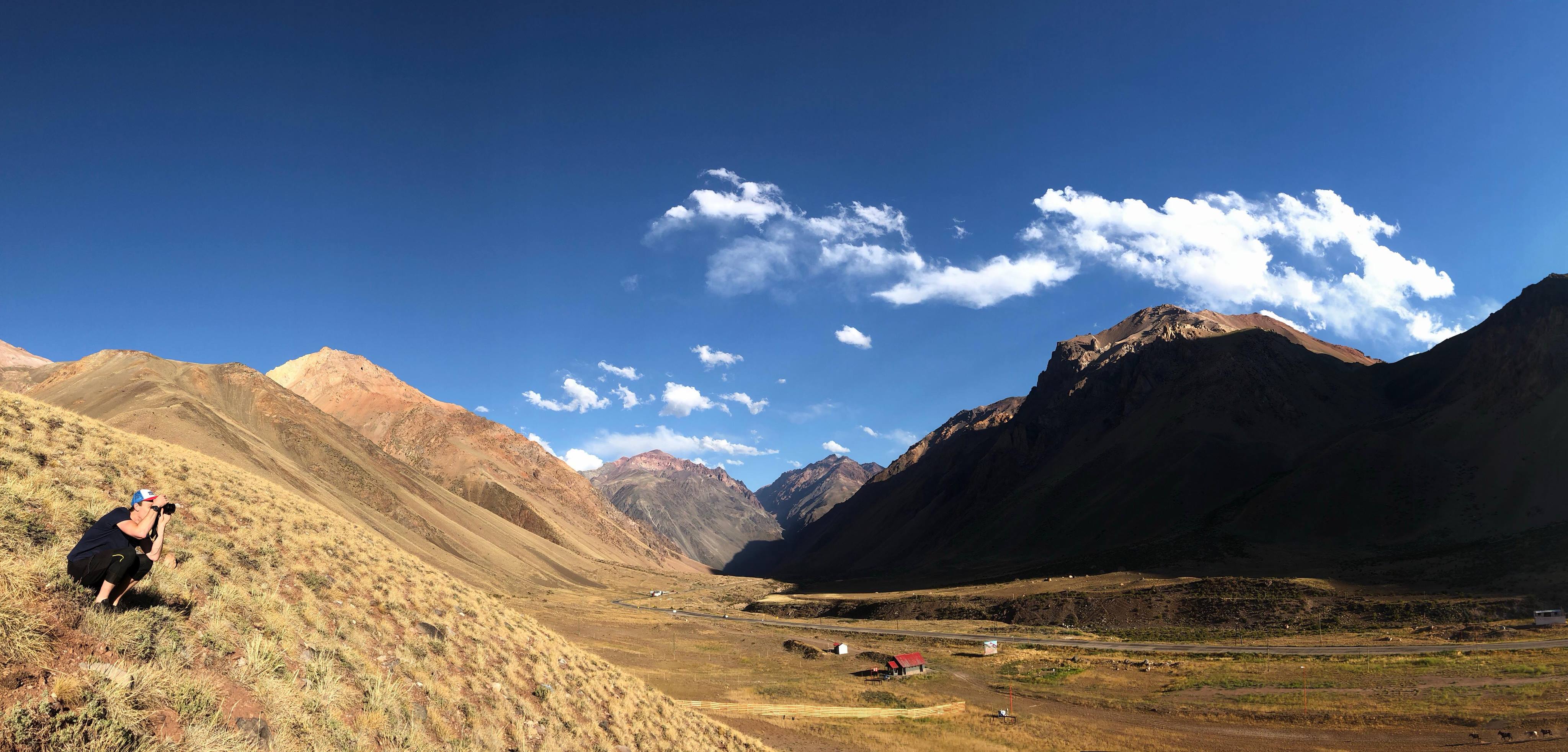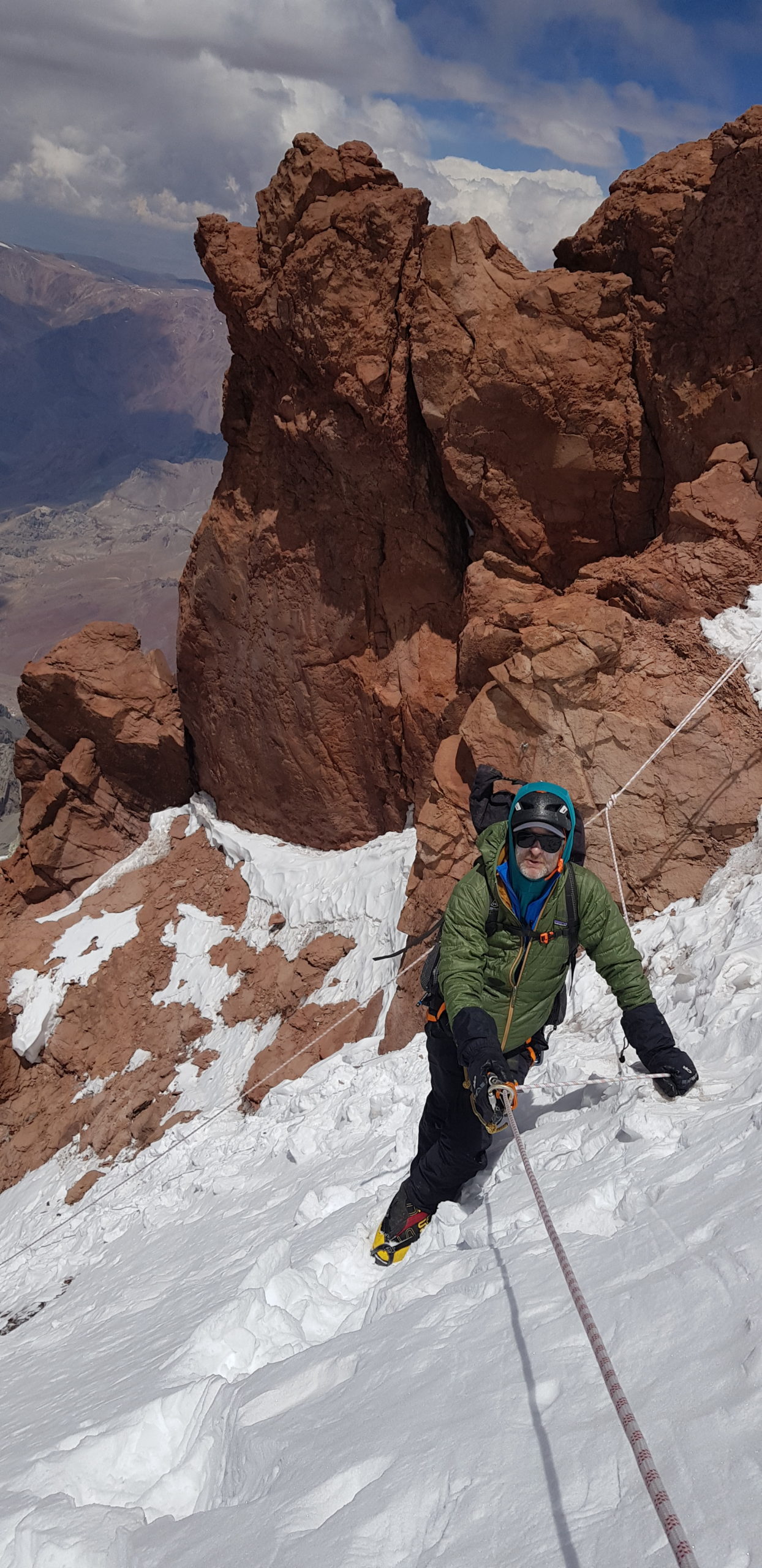... Lobuche BC, Pheriche, and Tengboche...
CTSS Teams are making great progress trekking up the Khumbu Valley.
Western Guided Teams have moved from Periche into Lobuche Basecamp (LBC). They'll spend the next few days moving to Lobuche High Camp, acclimatizing and finally making their summit bid on Lobuche before descending back to LBC and continuing their trek into Everest Basecamp (EBC). Wifi availability is very limited in LBC and above, so we look forward to getting photos from the team after their climb.
CTSS Private Teams as well as some of our trekkers moved up to Pheriche yesterday. Today the plan is to hike up to a nearby viewpoint at 4800 meters for an acclimatization hike. Soon they'll be moving up to Lobuche Basecamp as well.
Our big 3rd wave team Including our EBC Trekkers, 3 Peaks team, Sherpa guided climbers, Lhotse team, and Everest C2/C3 climbers is acclimatizing in Tengboche with a visit to the famous Tengboche Monastery.
Everyone is doing well and, aside from a few light altitude headaches, the team is in fine shape to keep working upwards towards Everest Basecamp. Weather has cooperated and they're taking in some of the most dramatic landscapes anywhere in the world.
All is well in the Khumbu Valley!
Cheers,
CTSS Team
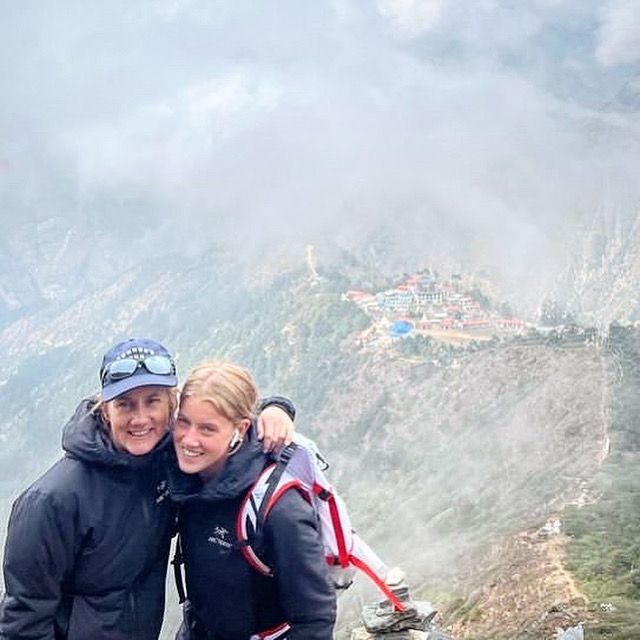
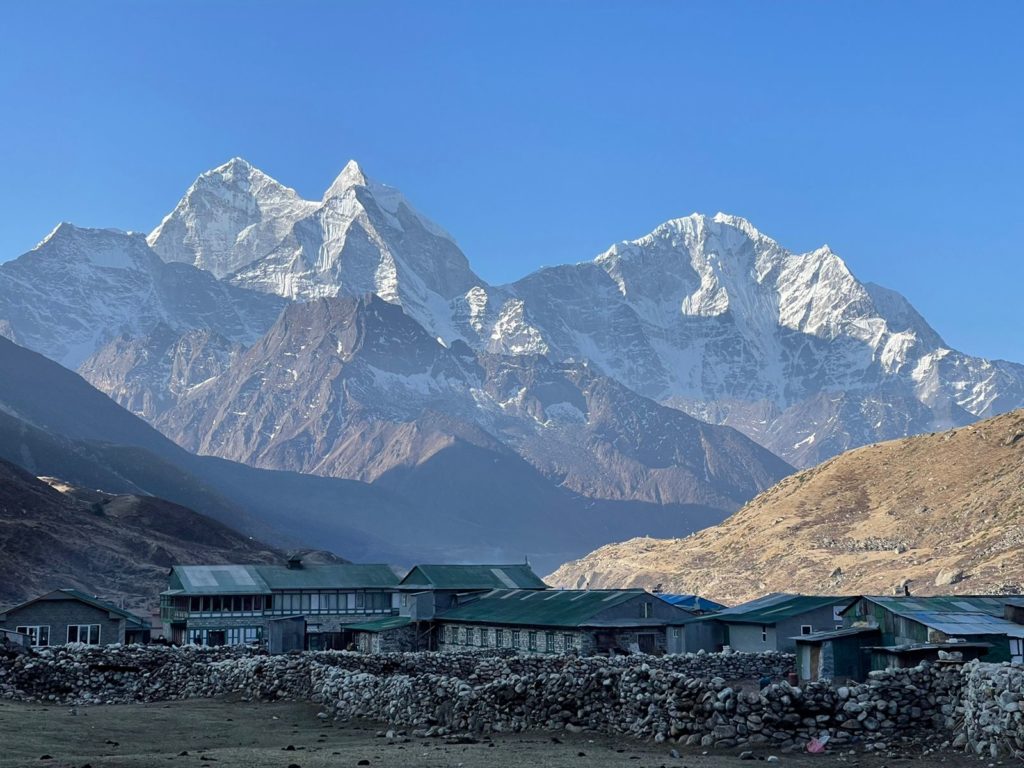
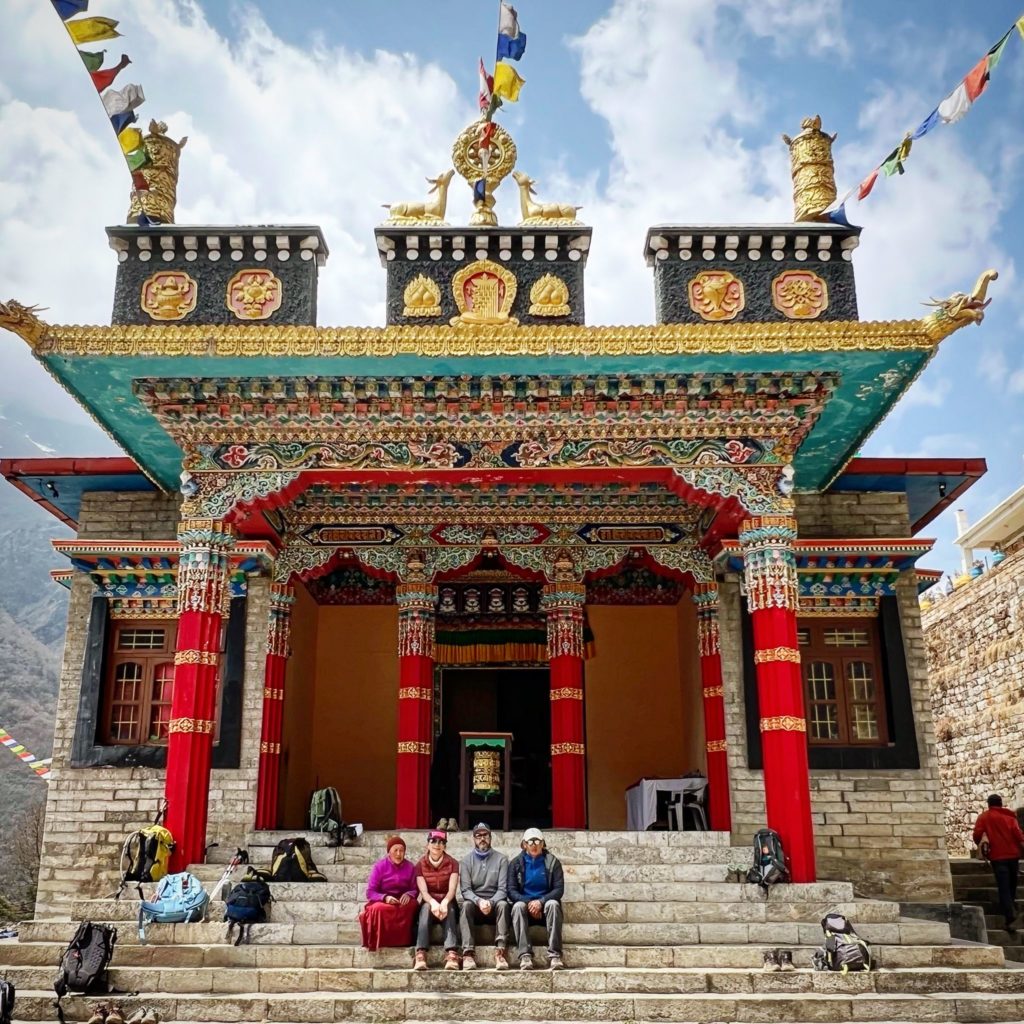
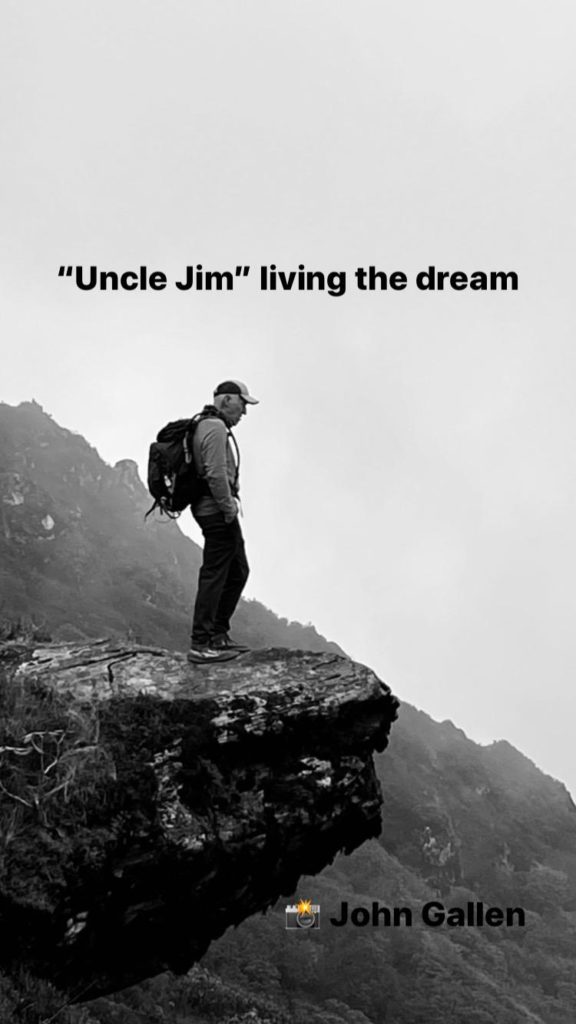
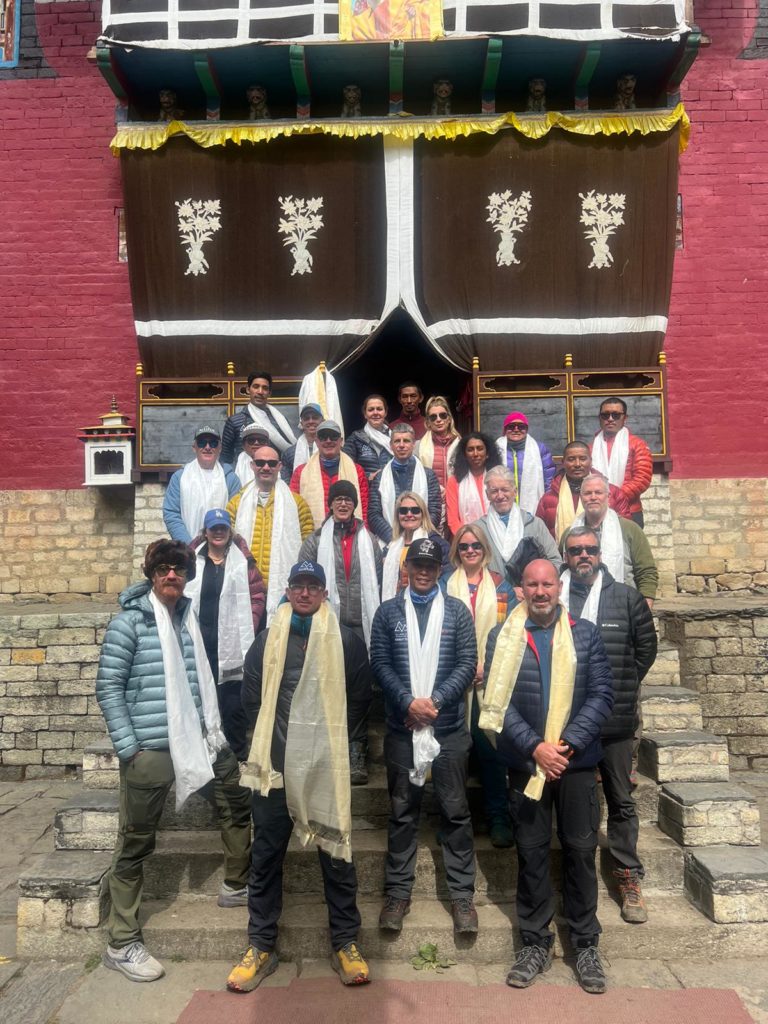
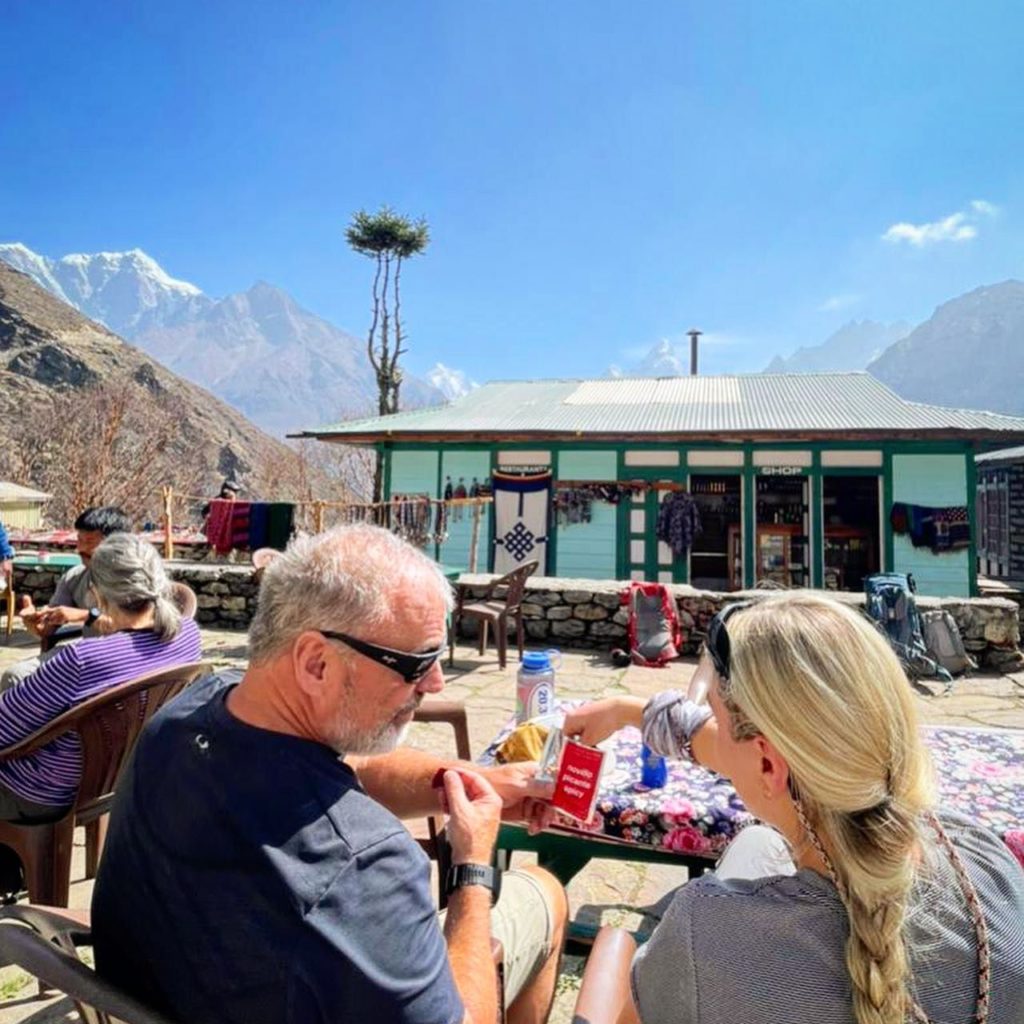
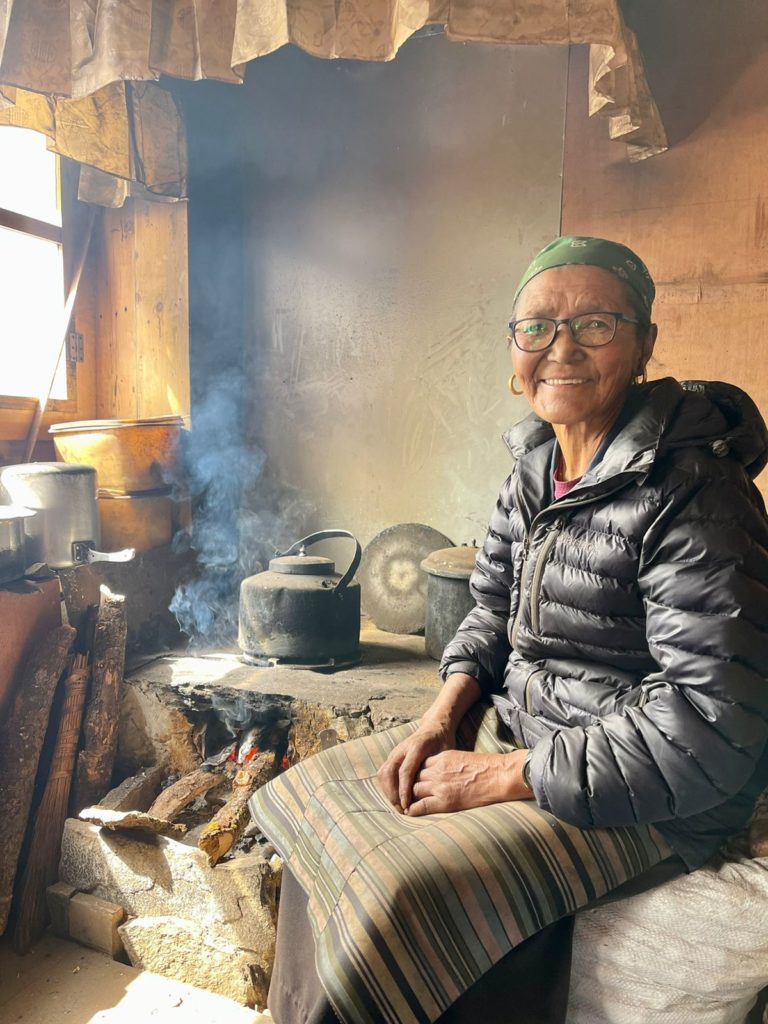
... CTSS Everest Teams in Khumbu Valley
All of our 2022 Everest teams are working their way up the beautiful Khumbu Valley.
Wester Guided Team Hiked to Pheriche after up 2 days in Tengboche enjoying amazing views of Everest and much of the Khumbu Valley. Along the way the team stopped in Pangboche for a Puja ceremony. The team is now resting in Pheriche before continuing on tomorrow.
CTSS Private Teams Moved up to Tengboche yesterday where they also received a Puja ceremony. They'll rest a day in Tengboche before heading to Pheriche
Our big 3rd wave Team Including our EBC Trekkers, 3 Peaks team, Sherpa guided climbers, Lhotse team, and Everest C2/C3 climbers made it to Namche yesterday, moving quickly and as a strong team. Today they'll rest in Namche before moving on tomorrow.
Cheers,
CTSS Team
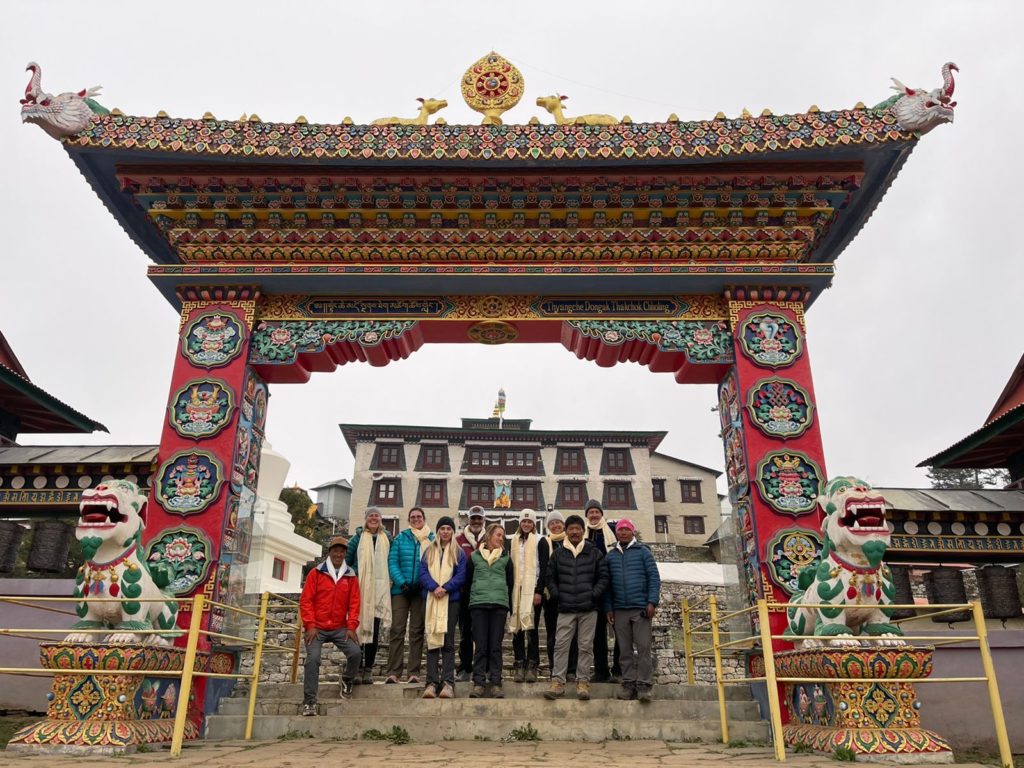
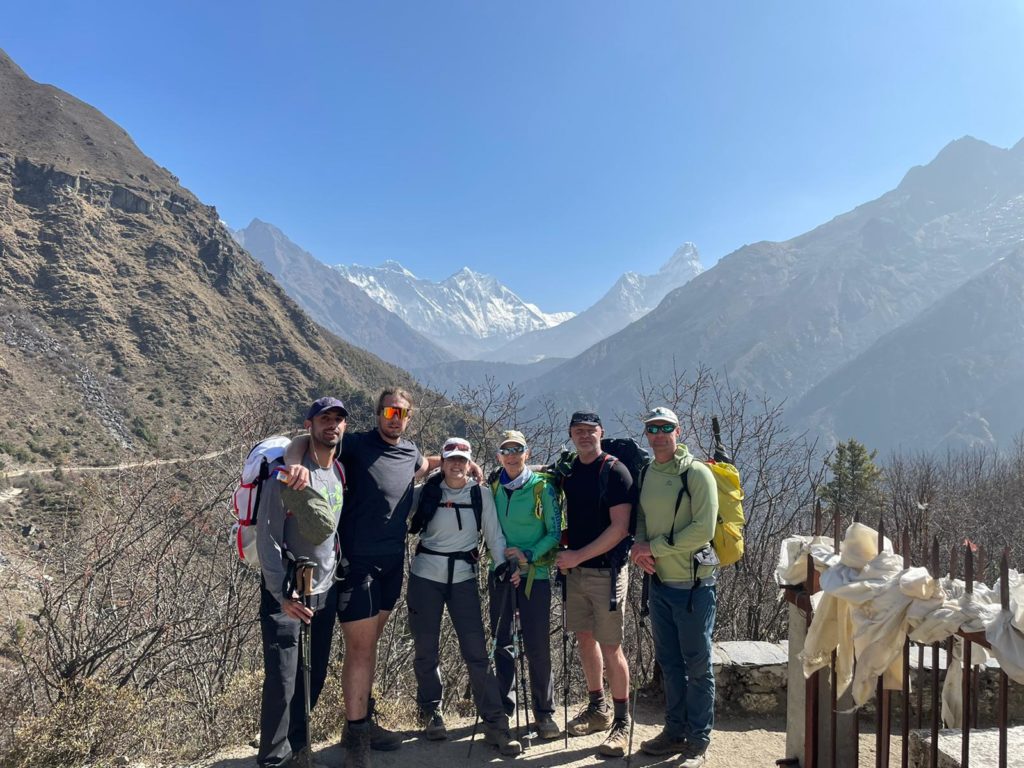
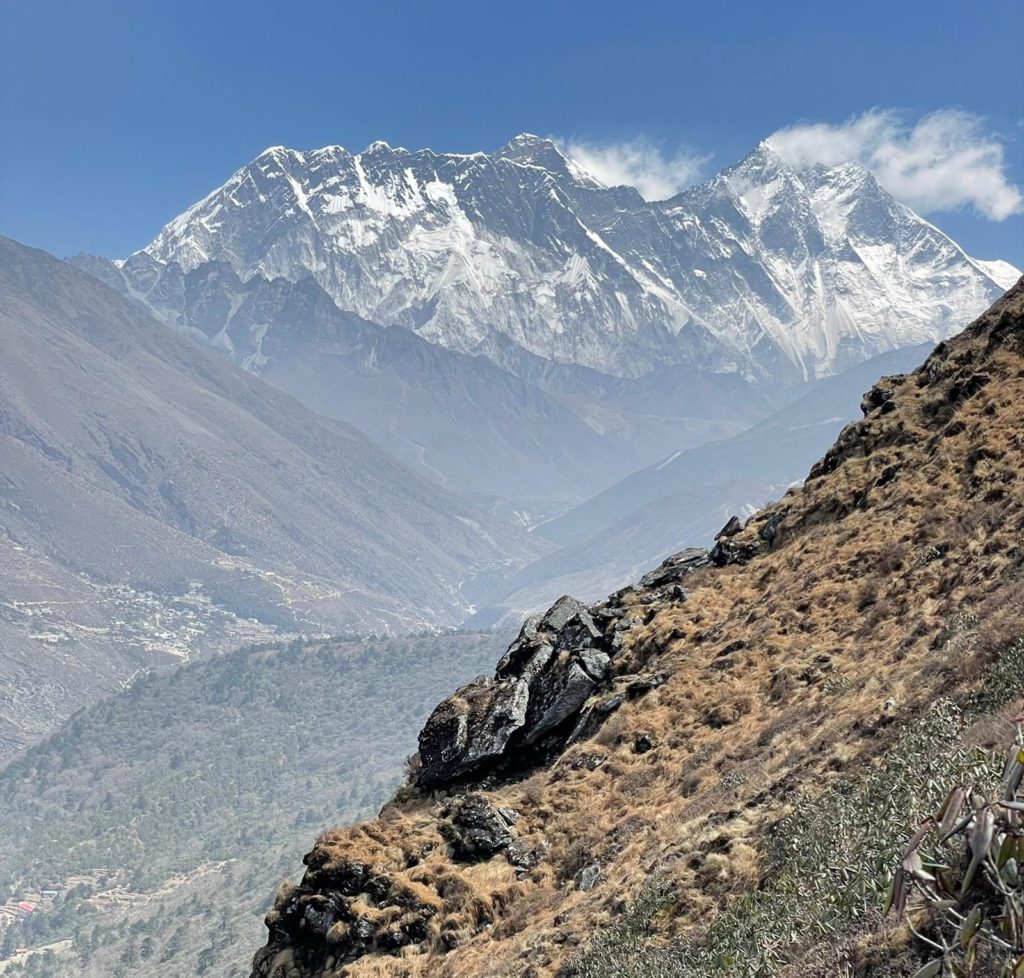
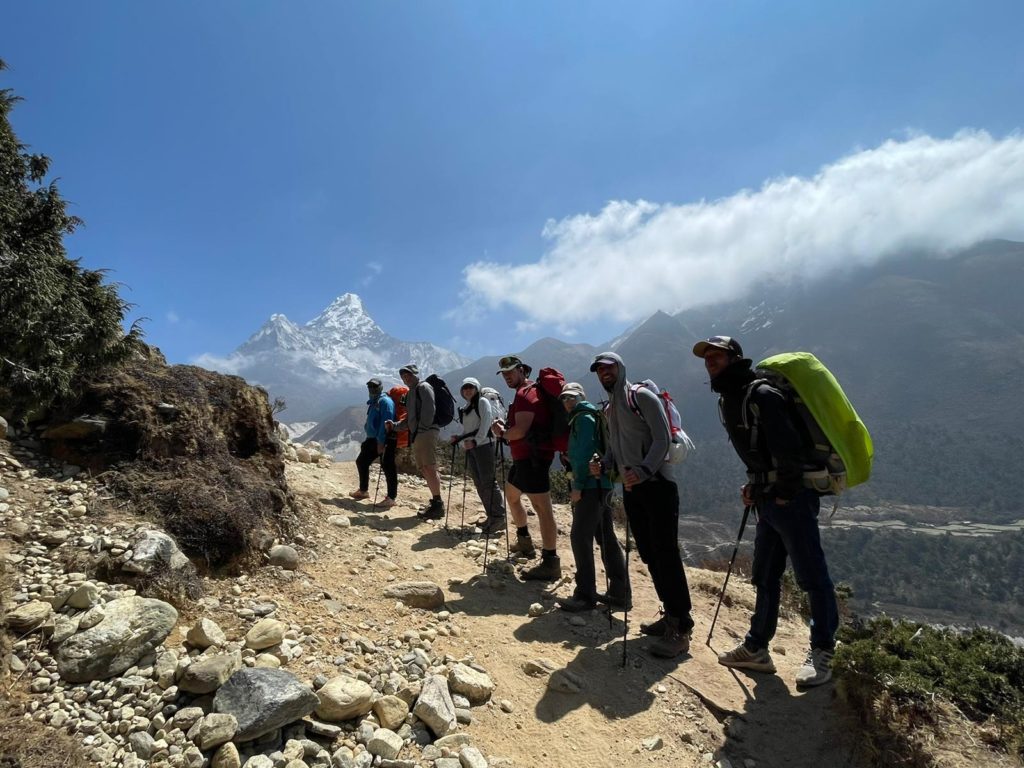
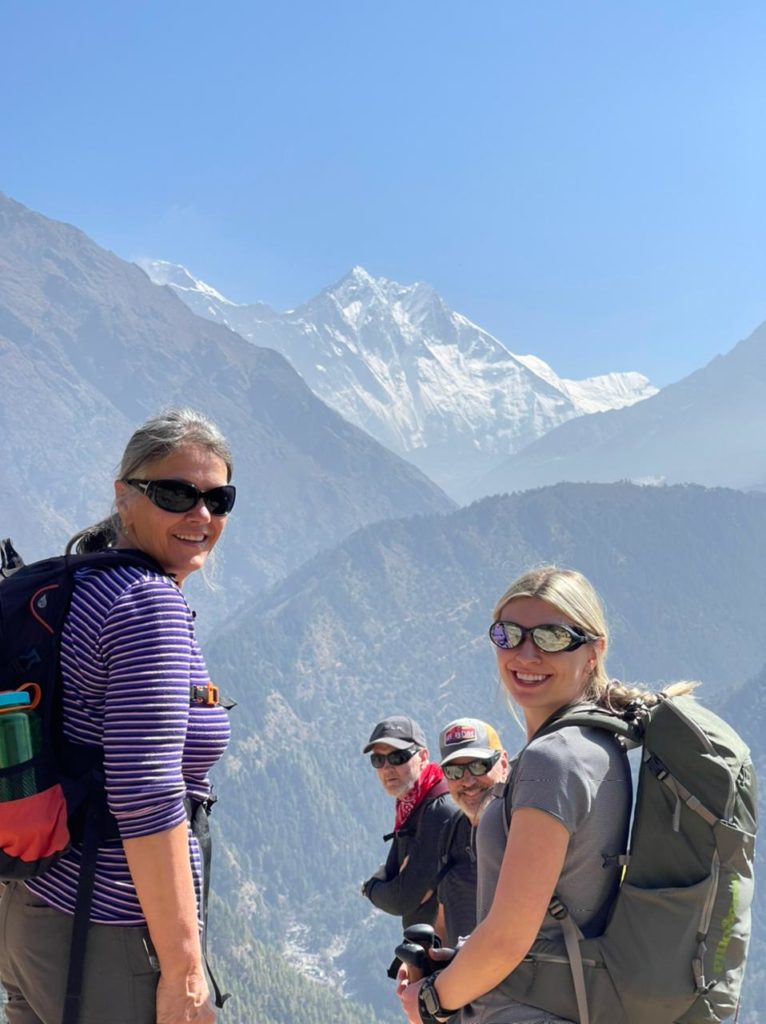
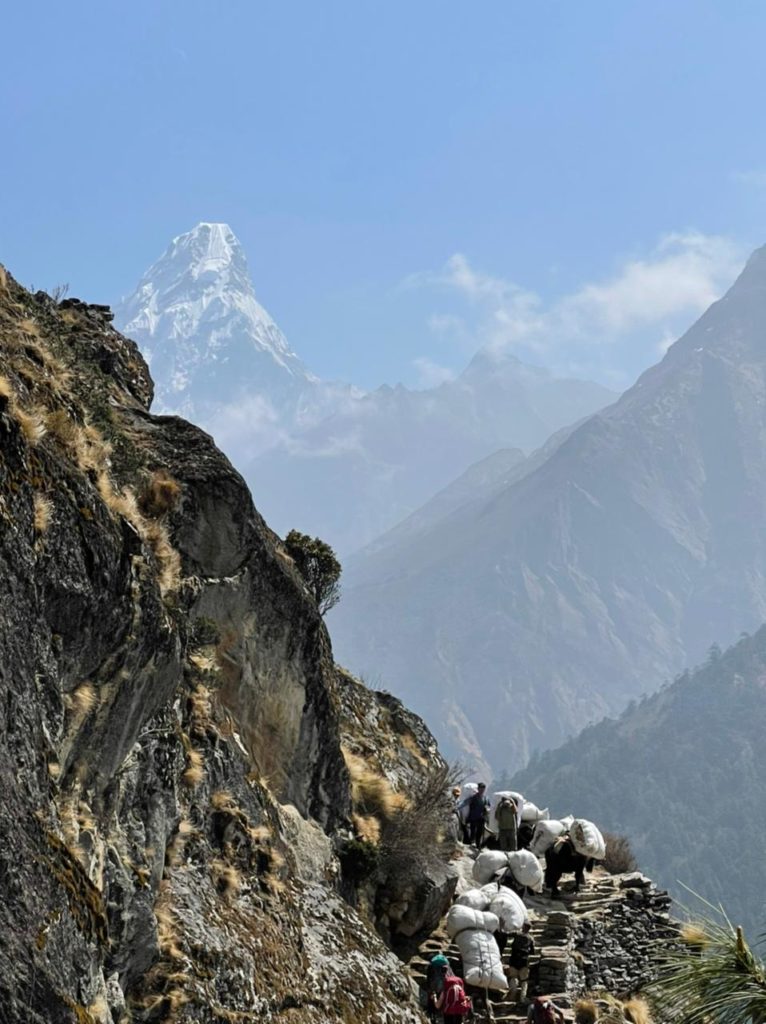
...Everest Teams on the Move...
After a busy few days in Kathmandu our Everest teams are out on the trail and working their way up the Khumbu Valley!
CTSS Guide Casey Grom and our Western Guided Team is trekking to Tengboche today with Guide Tomas Ceppi and his private climb team close behind in Namche.
The last wave of CTSS climbers and Basecamp trekkers are flying into Lukla today (weather permitting) to start their trek up the valley.
This is one of the most exciting times of any expedition. Logistics are set, shopping is done, you cut your tether to the city and head out on the trail. After the inevitable rush getting everything done in KTM climbers and trekkers can finally start settling into the rhythm of trekking into basecamp.
Best of luck to all our teams as they start the adventure of a lifetime!
Cheers,
CTSS Team
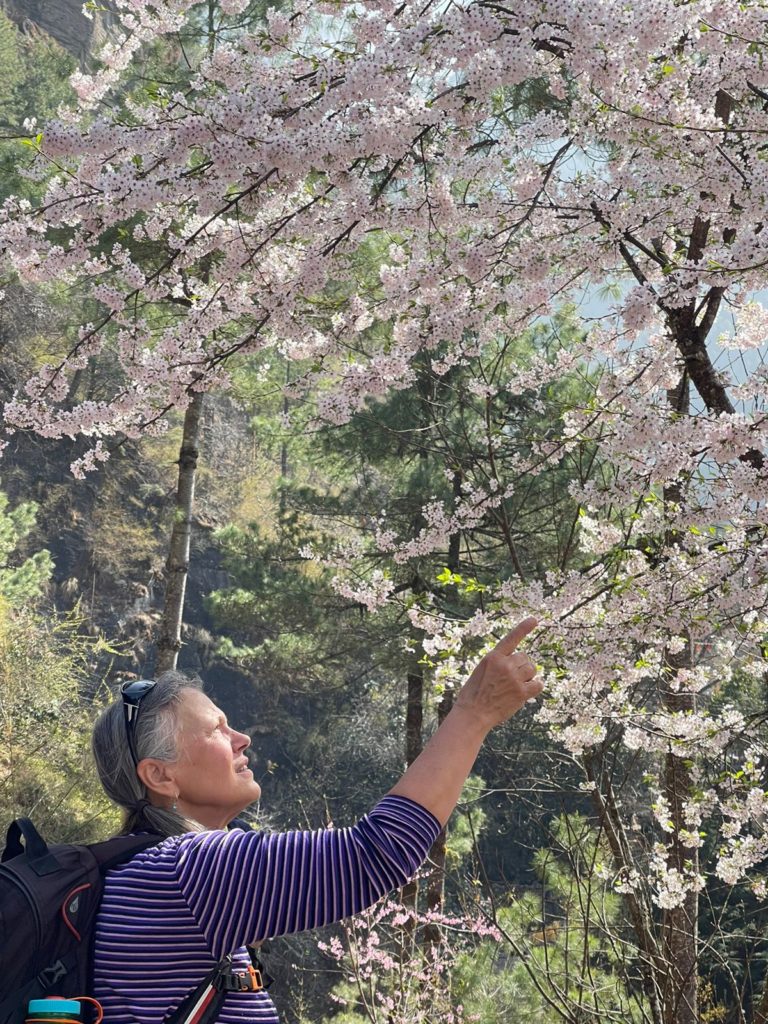
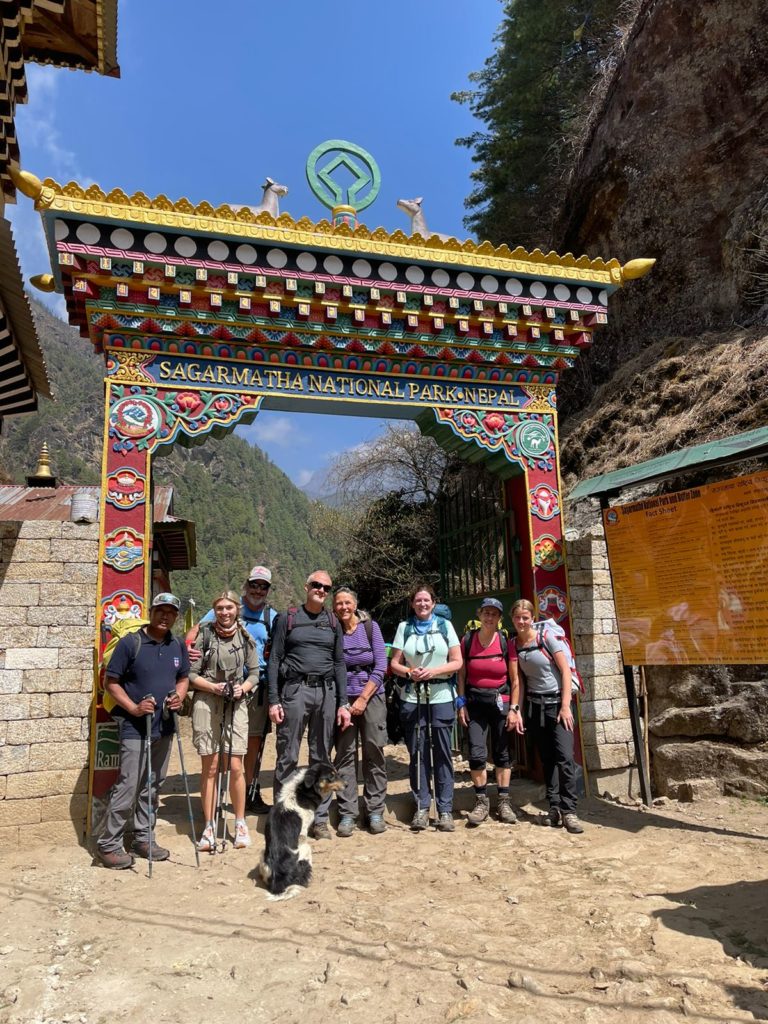
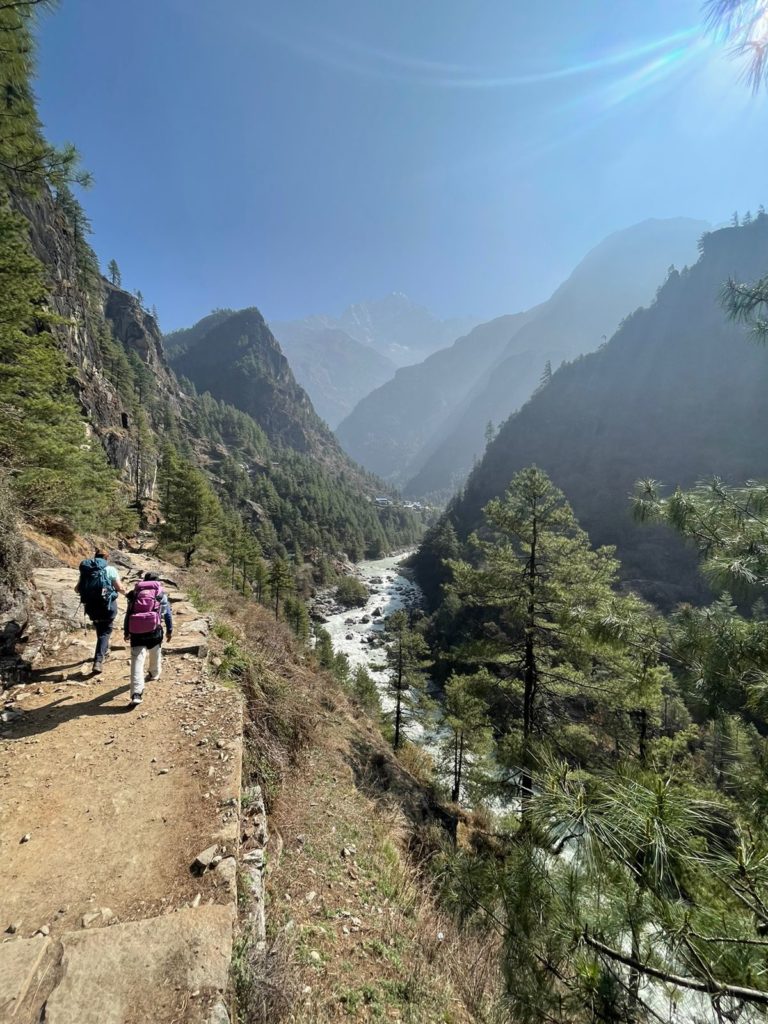
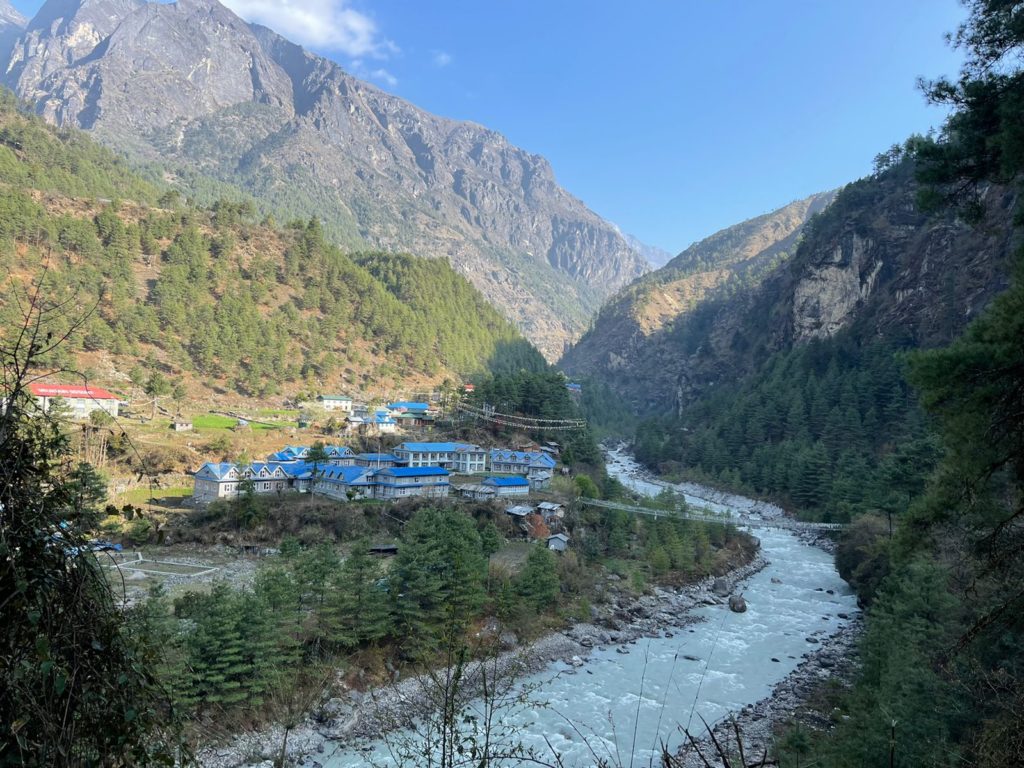
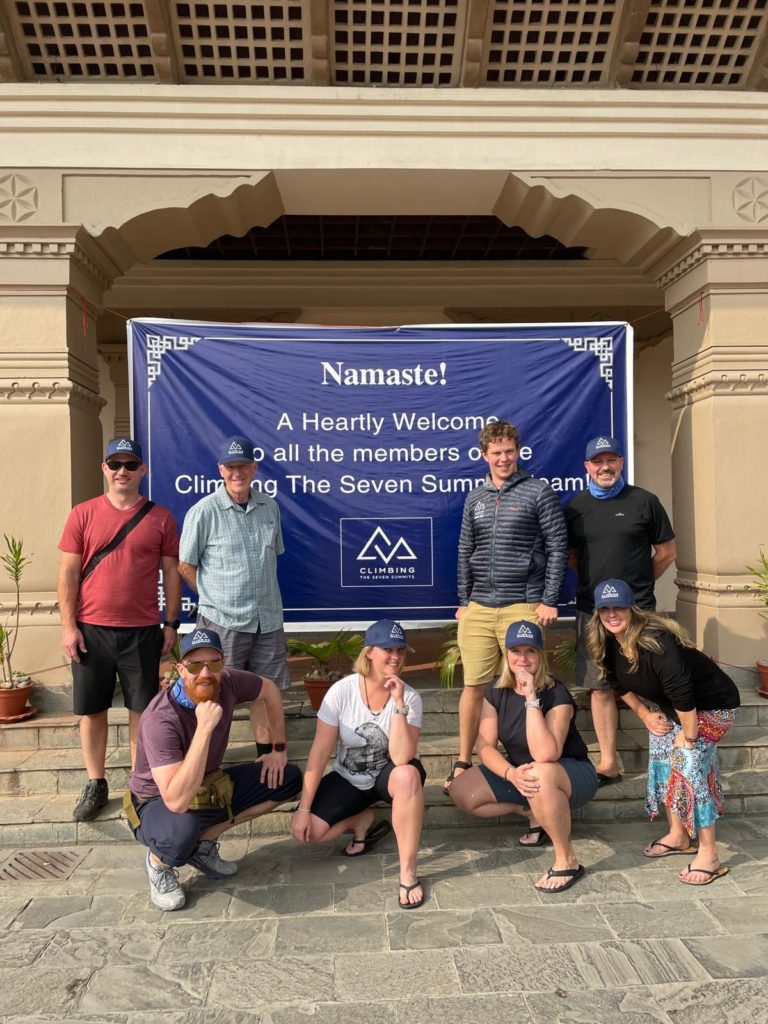
Up to Namche... Into Lukla...Rolling into KTM.. Everest 2022 News
CTSS's 3x main Himalayan climbing/trekking teams have launched.
Our Western Guided Team, headed up by 5x Everest summiteer & CTSS Guide Casey Grom, have reached Namche. After tackling the Namche Hill suffer-fest they'll enjoy an easier day tomorrow with a scheduled acclimatization/rest day where they'll do a light hike to a nearby monastery. Today they crossed one of the most spectacular suspension bridges in the world!
Meanwhile our Private Guided 1:1 climbers (both Private Western Guided climbers and Private IFMGA -internationally certified - Guided climbers are hot on their heels arriving into Phakding for their first night on the trail. Things looked a bit challenging with heavy fog this morning in Lukla socking in the airport, so the team decided to forgo their fixed wing flight in favour of a helicopter arrival. It was a great move and they are on schedule.
Finally our final wave of climbers (Everest/Lhotse/3 Peaks) and our EBC trekkers arrived in Kathmandu today, they've got a full day of gear checks/briefings tomorrow and then will fly into the valley on the 5th of April with Mike Hamill.
It's one of our favourite (& busy!) times of year as the teams head out. It's the culmination of a lifetime of dreaming, over a year worth of training and logistical planning, and here we are - out of the gates and moving uphill.
Cheers
CTSS Team
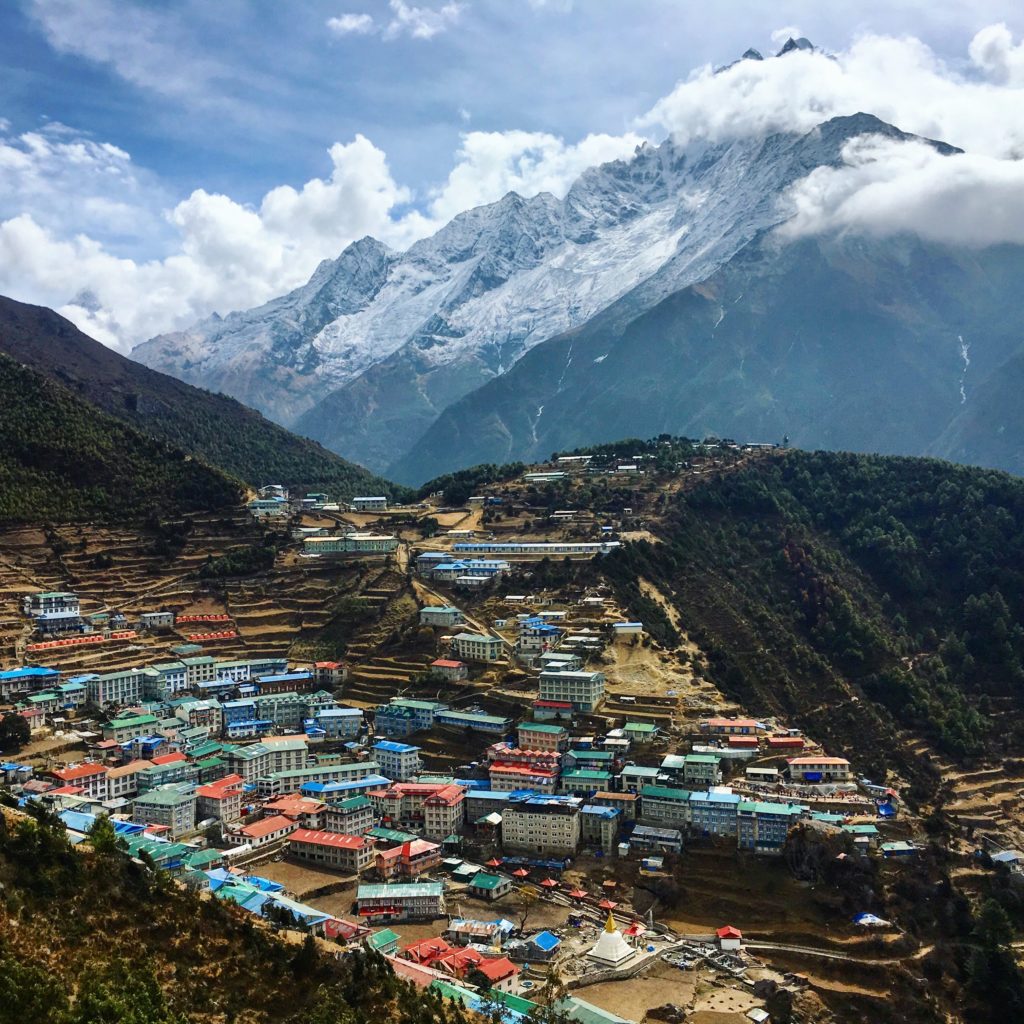
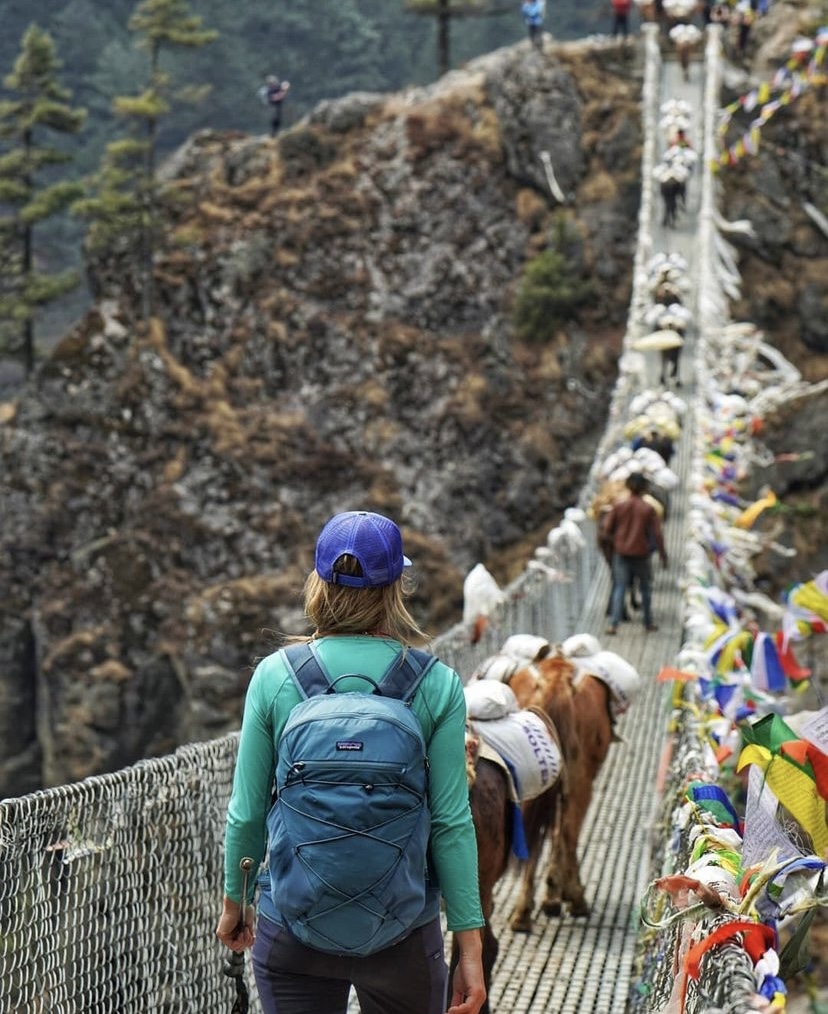

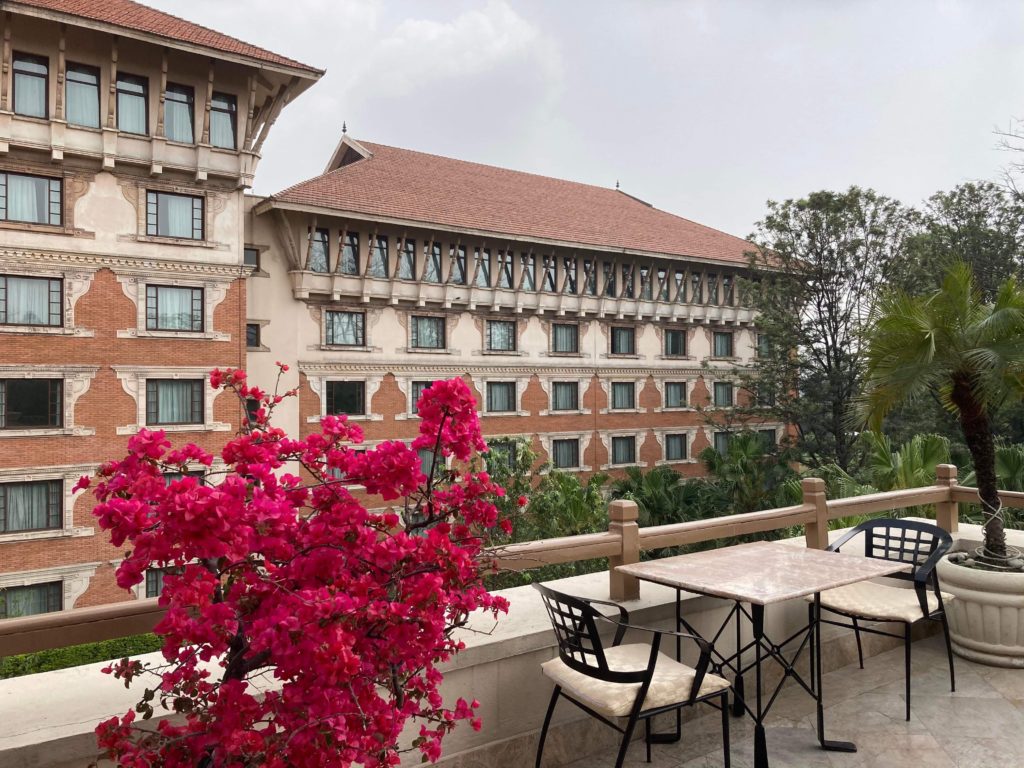
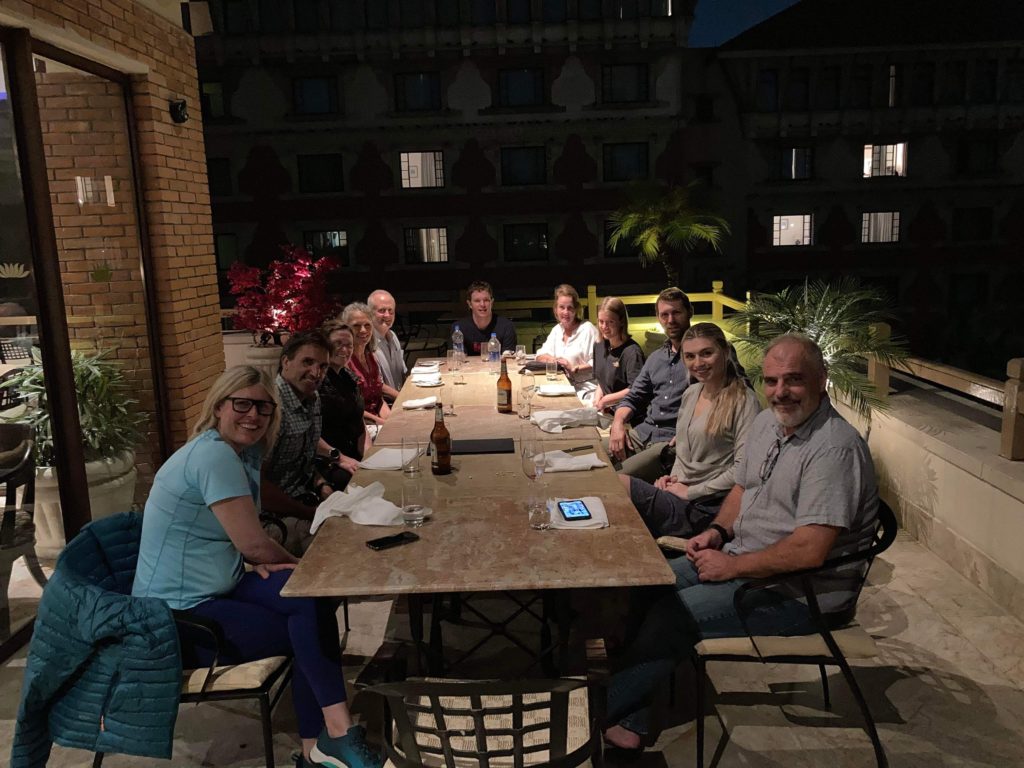
Everest 2022 Underway
It's that time of year again! The Mountains of the Himalaya have been calling and we're delighted to answer the call. CTSS has teammates from all corners of the world flocking to Kathmandu to begin their journey up the Khumbu to Everest and the other peaks in the Himalaya.
This year we have climbers heading to Everest, Lhotse, Lobuche, Pokalde, Island Peak and trekkers heading up to Base Camp and over to Gokyo Lakes.
Their schedules are slightly staggered, with the Western Guided Everest Team Climbers taking off to Lukla early this morning and landing safely. They'll be on their way to Phakding where they will spend their first night on the Everest Base Camp trail. Tomorrow they'll have their first real 'stretch of the legs' up Namche Hill to Namche Bazaar. Casey Grom, seasoned Everest Guide and 5x summiteer is heading up that team.
Many of our Private Everest climbers and some EBC trekkers have also flown in today, they'll do their gear checks and briefings tomorrow before flying to Lukla early on the morning of the 3rd.
Finally we have our final wave of Everest climbers, 3 Peaks & Lobuche climbers and our trek team arriving on the 3rd and scheduled to head into the valley on the 5th April.
Kathmandu is all about shaking off the jetlag, making any last minute arrangements and just getting in the headspace of the expeditions ahead.
It was also a nice opportunity for Mike Hamill (owner of CTSS and Expedition Leader) who was invited to a special thank you dinner by the Vice President of the Nepal Mountain Guides Association to show their appreciation for CTSS' & Tiger of the Snows Fund (our not for profit arm) sponsorship of our recent medical and technical skills course and to thank us for hiring so many of their Guides.
We look forward to keeping you updated as the teams weave their way up the valley toward their goals.
Cheers
CTSS Team

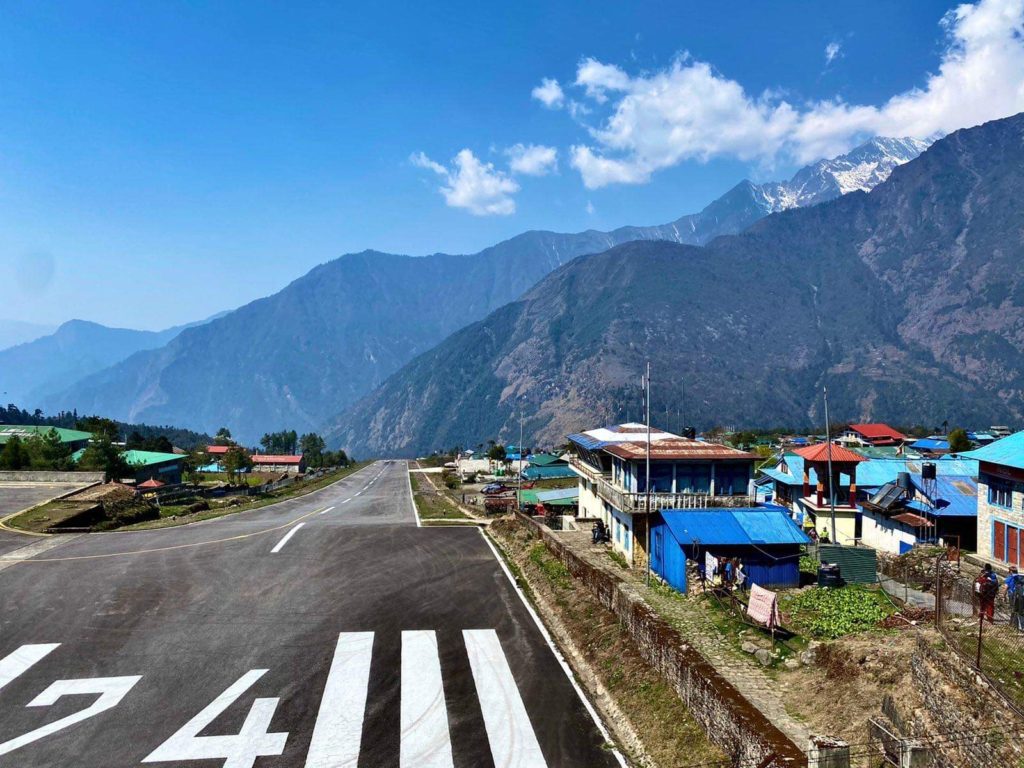
Aconcagua Executive
$16,995 USD
December 21, 2025 - January 9, 2026
January 11 - 31, 2026
February 1 - 20, 2026
Our Executive option is designed for climbers who want to maximize their opportunity for success with the use of summit day oxygen, alleviating the traditional heavy pack loads, skip the grueling 18-mile hike back to the road with a helicopter exit, and enjoy more time relaxing in Mendoza.
Included are:
- 5-star accommodation in Mendoza to rest and shake off the jet lag
- Single rooming in hotels & at Puente del Inca
- Single dome tent accommodation at Base Camp
- Personal porters on move days
- 1x bottle of oxygen, mask and regulator on summit day
- Scenic helicopter flight from base camp out of the Horcones Valley back to the Park Entrance.
Aconcagua 360 Executive follows our time-tested climb schedule. Meeting in Mendoza, Argentina, we conduct thorough gear checks, safety and strategy briefings before driving to Puente del Inca to begin our trek to Plaza Argentina Base Camp. We utilize three camps to work our way into summit position before descending the opposite side of the mountain to Plaza de Mulas Base Camp where we board our helicopter to whisk back down the valley, allowing Executive climbers to arrive much earlier than normal back to our luxury hotel in Mendoza!
Built to provide adequate acclimatization time and contingency days in order to maximize the team’s chance of success, this climb is well suited to climbers with excellent fitness and some prior expedition experience.
As always, CTSS provides guidance, leadership, and expedition oversight by renowned expedition leader Mike Hamill, local guides, logistics, team gear, food, and support for a summit attempt on Aconcagua.
All prices are in US Dollars.
CTSS requires clients to buy trip insurance for all expeditions. Please see our page on trip insurance and cancellation policy for more information.
All payments once submitted are non-refundable and non-transferable. If balances are not received by specified dates, the client forfeits their place on the program and any prior fees paid.
Aconcagua Executive Team Expedition Climb Schedule: Vacas Valley and Traverse
This itinerary is only a rough estimate and will be determined by weather and acclimatization. This is adventure travel, meaning things rarely go as planned and this schedule will likely change. Climbers need to be adaptable and positive.
We always recommend climbers arrive in Mendoza one day early to avoid travel delays or issues with lost baggage. Added expenses (e.g., hotel, food, or sightseeing) from this extra day are the client’s responsibility.
Daily meal inclusions are indicated in parentheses.
- Day 1: Arrive in Mendoza (- / - / -)
- Day 2: Gear checks, team meeting, team briefing (B / - / D)
- Day 3: Obtain permits and transit to Puente del Inca (B / - / -)
- Day 4: Mule-assisted day hike to first camp, Pampa de Leñas (B / - / D)
- Day 5: Mule-assisted day hike to second camp, Casa de Piedra (B / - / D)
- Day 6: Mule-assisted hike to Plaza Argentina Base Camp (B / - / D)
- Day 7: Rest and acclimatization day at base camp (B / - / D)
- Day 8: Load carry to Camp 1 and return to base camp (B / - / D)
- Day 9: Rest in base camp (B / - / D)
- Day 10: Move to Camp 1 with gear (porters assist) (B / - / D)
- Day 11: Carry to Camp 2 and return to Camp 1 (B / - / D)
- Day 12: Move to Camp 2 with gear (porters assist) (B / - / D)
- Day 13: Rest day in Camp 2 (B / - / D)
- Day 14: Move to Camp 3 (porters assist) (B / - / D)
- Day 15: 1st potential summit day (B / - / D)
- Day 16: Descend to Plaza de Mulas Base Camp, completing the traverse (porters assist) (B / - / D)
- Day 17: Helicopter flight out from Plaza de Mulas, road transport back to Mendoza (B / - / -)
- Day 18: Contingency day
- Day 19: Contingency day
- Day 20: Earliest date climbers can fly home
Our expeditions are designed to be fully inclusive, except for some services/items of a personal nature like flights, gear, insurance. Here’s a detailed list so you know what to expect
Included:
- Professional mountain guides
- Reliable, professional mule support from the best local outfitters
- One personal porter per move (each leg of the climb)
- Three nights (single occupancy) lodging in Mendoza on arrival, one night lodging at Puente del Inca (double occupancy), and one-night lodging (single occupancy) in Mendoza upon our return. *Accommodation on unused contingency days are your responsibility*
- All group transportation while on the expedition. If you depart early then the added expenses for transport, lodging, rescue, and evacuation is your own responsibility.
- Shared helicopter transfer from Plaza de Mulas Base Camp
- Food: Breakfast daily & all expedition (on mountain) food is covered including breakfast, dinner, snacks and hot drinks. Lunch and in-town restaurant meals are your own expense.
- All group gear, including four-season tents, cooking gear, group duffels, stoves, etc.
- First Aid equipment
- Satellite phone to update the CTSS blog and available to clientele at $3/min
Excluded:
- Climbing permit fee (price varies from season to season, price set by the Aconcagua Provincial Park)
- All in-town restaurant meals (breakfast is provided at hotel), Puente del Inca dinner, and mountain lunch food
- Transportation to and from the airport upon arrival/departure
- Flight costs to and from Mendoza
- All personal climbing gear is the responsibility of the client
- In the event of a rescue, evacuation, or early departure from the group, any rescue expenses incurred or excess expenses above and beyond our normal trip costs including transport, hotels, evacuation, flight changes, and gear shipping are the responsibility of the client.
- Unused contingency day hotel nights in Mendoza
- Guide and porter tips (customary but optional)
- Costs incurred as a result of events beyond the control of CTSS above and beyond the normal expedition costs
- Required trip insurance policy (for trip cancellation, interruption, rescue & evacuation, medical treatment, repatriation, etc.) trip insurance policy (for trip cancellation, interruption, rescue & evacuation, medical treatment, repatriation, etc.)
Executive Porters on Aconcagua
Porters on Aconcagua operate differently from most mountains. Rather than being attached directly to a particular expedition or individual climber, porters work for the on-mountain logistics companies and can carry loads for several people, or expeditions, day to day or even on the same day.
Porters live at base camp and ascend up to our camps whenever needed, carry their load to the next camp, and return back to basecamp the same day. You will be amazed at how fast they move and how hard they work!
A standard porter load is strictly 20kg and charged at a flat rate up to 20kg (i.e. if you only have 17kg you’ll still be charged the 20kg rate). If you have additional weight to be carried you will be charged a pro-rated amount for all extra kilograms.
Our Executive program provides each climber with 1x 20kg porter load per move day. This is should be more than adequate to keep your personal pack weight low.
Please note, porters don’t carry loads on acclimatization days or travel with the team. Rather they assist on ‘move’ days. Most often they will grab their allocated loads shortly after we’ve departed to ascend to the next camp, passing us on the way, and depositing their load before we roll in! You may see the same faces each time, or you may get new porters each day.
Aconcagua Travel Guide
Getting to Mendoza:
Flights directly to Mendoza, Argentina (MDZ) are relatively easy to find through online search tools.
We recommend avoiding flights that route through Buenos Aires, if possible, as you have to exit the international airport, collect your baggage, grab a taxi for about 45 minutes, and re-enter security at the domestic airport located in another part of the city, which can be stressful.
Airport to the Hotel:
The easiest and cheapest way from the airport to our hotel is by taxi. These are readily available just in front of the MDZ terminal. Your pre-trip information will include the team’s hotel name and address. Most taxi rides to and from the airport are less than $25 USD. If you would prefer an airport pickup, you can arrange a shuttle directly through the hotel.
In Mendoza:
While our focus will always be on the climb itself, don’t forget to enjoy the wonderful city of Mendoza while you’re there. With a warm, Mediterranean climate and European feel Mendoza is best known for three things: steak, Malbec wine, and gelato. There are dozens of excellent restaurants, wine shops, and gelato ice creameries within walking distance of our hotel. After your climb it is easy to unwind with wine tours, bike tours, and a multitude of other activities so many people chose to stick around for a few extra days.
Getting Home:
Our hotel can arrange a taxi to the airport for your return flight. It takes less than 30 minutes to drive to the airport, so you’re able to enjoy Mendoza up until the very last minute of your stay.
Useful Extras:
- Travel wallet: Mendoza is a safe and tourist friendly city. However, keeping your valuables protected is simply the responsible course of action while traveling
- Warm weather clothing: Mendoza in the summer can be quite hot. Bring shorts, sandals, and comfortable clothing for around town during your stay. You will be able to securely leave these travel clothes while you are on the mountain.
- Power accessories: Argentina has a reliable electrical grid that provides 240 volt, 50hz electricity. The country uses European Style plugs, type “C” and type “I.”
- Space for souvenirs: Especially if you are a wine aficionado, try to set aside some extra weight and space in your checked luggage for a few take-home items.
- Extra cash: We recommend bringing at least $2,000 USD in extra cash beyond anticipated trip costs. While the Argentinian peso is the standard currency, the US dollar carries a more universal value than other foreign currencies. Your extra US cash can be used for porters if you’re not feeling well one day, tips for staff or guides who go above and beyond, a helicopter exit, souvenirs, and/or treating yourself while in Mendoza. Of course, if you don’t spend the money, it can simply fly back home with you!
Aconcagua Private Climb
Aconcagua Private and Custom Climbs
Contact us for dates and itinerary planning.
Aconcagua Private Climb for 360° Traverse
- 1:1 Private Argentinian Guide: $26,995
- 1:1 International Guide: $42,995
Having your own private guide climbing with you can be an indispensable advantage and allow you to customize your itinerary and program to fit your schedule.
A personal guide will give you unprecedented personal attention, total autonomy and control over your trip. As both your climbing companion and your private coach, they can help you through every element of the expedition, give you valuable feedback, increase safety and make your climbing experience more enjoyable overall.
We will traverse the mountain by ascending the Vacas and Relinchos Valleys, utilizing three camps to work our way into summit position, before descending the opposite side of the mountain to Plaza de Mulas Base Camp and completing our expedition by trekking out to Penitentes (or a helicopter exit) and returning to Mendoza.
Whether you’re a less experienced climber or have climbed at altitude many times before, our private climbs give you the most flexibility and arguably the best chance of standing on top of Aconcagua.
CTSS requires clients to buy trip insurance for all expeditions. Please see our page on trip insurance and cancellation policy for more information.
All payments once submitted are non-refundable and non-transferable. If balances are not received by specified dates, the client forfeits their place on the program and any prior fees paid.
CTSS can work with our private climbers to create an ideal climb itinerary meeting their specific needs. Please contact us for more information.
The itinerary below is only an example and rough estimate, and it will be determined by weather and acclimatization. This is adventure travel, meaning things rarely go as planned and this schedule will likely change. Climbers need to be adaptable and positive.
We always recommend climbers arrive in Mendoza one day early to avoid travel delays or issues with lost baggage. Added expenses (e.g., hotel, food, or sightseeing) from this extra day are the client’s responsibility.
Daily meal inclusions are indicated in parentheses.
- Day 1: Meet in Mendoza (- / - / -)
- Day 2: Gear checks, team meeting, team dinner (B / - / D)
- Day 3: Permits and travel to Puente del Inca (B / - / -)
- Day 4: Mule-assisted day hike to first camp, Pampa de Leñas (B / - / D)
- Day 5: Mule-assisted day hike to second camp, Casa de Piedra (B / - / D)
- Day 6: Mule-assisted hike to Plaza Argentina Base Camp (B / - / D)
- Day 7: Rest and acclimatization day at base camp (B / - / D)
- Day 8: Load carry to Camp 1 and return to base camp (B / - / D)
- Day 9: Rest in base camp (B / - / D)
- Day 10: Move to Camp 1 with gear (B / - / D)
- Day 11: Carry to Camp 2 and return to Camp 1 (B / - / D)
- Day 12: Move to Camp 2 with gear (B / - / D)
- Day 13: Rest day in Camp 2 (B / - / D)
- Day 14: Move to Camp 3 (B / - / D)
- Day 15: 1st potential summit day (B / - / D)
- Day 16: Descend to Plaza de Mulas Base Camp, completing the traverse (B / - / D)
- Day 17: Trek out from base camp to park entrance and drive to Mendoza, arriving late (B / - / -)
- Day 18: Fly home or spend a day in Mendoza to relax, celebrate, and get together for dinner as a team (B / - / -)
- Day 19: Contingency day
- Day 20: Contingency day
CTSS can work to develop a customized price to include or exclude more amenities for our private and custom climbers. Our standard private 1:1 Aconcagua climb provides:
Included:
- Professional mountain guides
- Reliable, professional mule support from the best local outfitters
- One or two nights lodging (depending on your program) in Mendoza on arrival, one night lodging at Penitentes and one night lodging in Mendoza upon our return (Accommodation on unused contingency days are your responsibility.)
- All group transportation while on the expedition. If you depart early then the added expenses for transport, lodging, rescue, and evacuation is your own responsibility.
- Breakfast daily and all expedition (on-mountain) food is covered including breakfast, dinner, snacks, and hot drinks. Lunch and in-town restaurant meals are your own expense.
- All group gear, including four-season tents, cooking gear, group duffels, stoves, and first aid equipment, etc.
- Satellite phone used to update the CTSS blog and available to clientele at $3/min
Excluded:
- All porters
- Mountain climbing permit (price varies from season to season, price set by the Aconcagua Provincial Park)
- All in town restaurant meals (breakfast is provided), Penitentes dinner, and mountain lunch food
- Transportation to and from the airport upon arrival/departure
- Flight costs to and from Mendoza
- All personal climbing gear is the responsibility of the client
- In the event of a rescue, evacuation, or early departure from the group, any rescue expenses incurred or excess expenses above and beyond our normal trip costs including transport, hotels, evacuation, flight changes, and gear shipping are the responsibility of the client.
- Unused contingency day hotel nights in Mendoza
- Guide and porter tips (customary but optional)
- Costs incurred as a result of events beyond the control of CTSS above and beyond the normal expedition costs
- Required trip insurance policy (for trip cancellation, interruption, rescue & evacuation, medical treatment, repatriation, etc.)
Porters on Aconcagua
Porters on Aconcagua operate differently from most mountains. Rather than being attached directly to a particular expedition or climber, porters work for the on-mountain logistics companies and can carry loads for several people, or expeditions, day to day or even on the same day.
Porters live at base camp and ascend up to our camps whenever needed, carry their load to the next camp, and return back to base camp the same day. You will be amazed at how fast they move and how hard they work!
A standard porter load is strictly 20kg and charged at a flat rate up to 20kg (i.e. if you only have 17kg you’ll still be charged the 20kg rate). If you have additional weight to be carried you will be charged a pro-rated amount for all extra kilograms.
Personal porters are not included in our private and custom climbs. If you would like a porter to assist in carrying your gear we highly recommend purchasing our Porter Add-On. Your guides can usually arrange a porter for the next day at any point along the trip above base camp via radio, as long as there are porters available for the last-minute carry. During peak season porters can be very busy so it is best to prepurchase the porter add-on in advance to lock in your porters and guarantee their availability.
Aconcagua Speed Ascent
$11,995 USD
December 26, 2025 - January 9, 2026
January 16 - 31, 2026
February 6 - 20, 2026
CTSS offers select climbers our “Speed Ascent” option which employs separate, custom logistics and state-of-the-art technology to allow you to summit in less time.
Partnering with Hypoxico, you will use a portable hypoxic altitude chamber that fits over your bed at home in the weeks leading up to the expedition (usually 6-8 weeks) to acclimate your body to the rarefied air and cut valuable days from the standard climbing schedule.
Having pre-acclimatized, you are able to fly directly into Aconcagua Base Camp by helicopter (skipping the long trek in) to meet your guides and teammates.
This option is perfect for those who want to minimize time away from home.
This expedition provides separate speed ascent logistics and support, before folding into the team climb at base camp, specialized Aconcagua guides, food, team gear, transport and a summit attempt on Aconcagua.
* Please note: CTSS will help you book and facilitate your helicopter flight and Hypoxico tent rental, but these costs are excluded and paid directly.
This option is also available on a 1:1 Private Guide & or the Polish Glacier on custom dates. Contact us for further information.
All prices are in US Dollars.
CTSS requires clients to buy trip insurance for all expeditions. Please see our page on trip insurance and cancellation policy for more information.
All payments once submitted are non-refundable and non-transferable. If balances are not received by specified dates, the client forfeits their place on the program and any prior fees paid.
This itinerary is only a rough estimate and will be determined by weather and acclimatization. This is adventure travel, meaning things rarely go as planned and this schedule will likely change. Climbers need to be adaptable and positive.
We always recommend climbers arrive in Mendoza one day early to avoid travel delays or issues with lost baggage. Added expenses (e.g., hotel, food, or sightseeing) from this extra day are the client’s responsibility.
Daily meal inclusions are indicated in parentheses.
- Day 1: Arrive Mendoza (- / - / -)
- Day 2: Drive to Puente del Inca and fly to Plaza Argentina Base Camp (B / - / D)
- Day 3: Carry to Camp 1 and return to base camp (B / - / D)
- Day 4: Rest day in base camp (B / - / D)
- Day 5: Move to Camp 1 (B / - / D)
- Day 6: Carry to Camp 2 and return to Camp 1 (B / - / D)
- Day 7: Move to Camp 2 with gear (B / - / D)
- Day 8: Rest day in Camp 2 (B / - / D)
- Day 9: Move to Camp 3 (B / - / D)
- Day 10: Summit day! (B / - / D)
- Day 11: Descend to Plaza de Mulas (B / - / D)
- Day 12: Trek to park entrance and return to Mendoza (or helicopter exit) (B / - / -)
- Day 13: Flights home (B / - / -)
- Day 14: Contingency day
- Day 15: Contingency day
Our expeditions are designed to be fully inclusive, except for some services/items of a personal nature like flights, gear, insurance. Here’s a detailed list so you know what to expect.
Included:
- Professional mountain guides
- Reliable, professional mule support from the best local outfitters
- One or two nights lodging (depending on your program) in Mendoza on arrival, one night lodging at Penitentes and one night lodging in Mendoza upon our return (Accommodation on unused contingency days are your responsibility.)
- All group transportation while on the expedition. If you depart early then the added expenses for transport, lodging, rescue, and evacuation are your own responsibility.
- Breakfast daily and all expedition (on-mountain) food is covered including breakfast, dinner, snacks, and hot drinks. Lunch and in-town restaurant meals are your own expense.
- All group gear, including four-season tents, cooking gear, group duffels, stoves, first aid equipment, etc.
- Satellite phone used to update the CTSS blog and available to clientele at $3/min
Excluded:
- All personal porters
- Mountain climbing permit fee (price varies from season to season, price set by the Aconcagua Provincial Park)
- All in-town restaurant meals (breakfast is provided at the hotel), Penitentes dinner, and mountain lunch food
- Transportation to and from the airport upon arrival/departure
- Flight costs to and from Mendoza
- All personal climbing gear is the responsibility of the client
- In the event of a rescue, evacuation, or early departure from the group, any rescue expenses incurred or excess expenses above and beyond our normal trip costs including transport, hotels, evacuation, flight changes, and gear shipping are the responsibility of the client.
- Unused contingency day hotel nights in Mendoza
- Guide and porter tips (customary but optional)
- Costs incurred as a result of events beyond the control of CTSS above and beyond the normal expedition costs
- Required trip insurance policy (for trip cancellation, interruption, rescue & evacuation, medical treatment, repatriation, etc.)
Polish Glacier and Traverse
$11,495 USD
December 21, 2025 - January 9, 2026
January 11 - 31, 2026
February 1 - 20, 2026
For those looking for more of a technical challenge on Aconcagua, we offer an ascent of the advanced Polish Glacier route.
The Polish Glacier ascends the steep, glaciated, upper northeastern slopes of Aconcagua to the summit. Climbers use fixed lines (like those we use on Everest) to navigate the 35-55 degree snow and ice.
It offers not only stunning views on a large and arduous summit day, but is excellent prep for those aspiring to Everest or other big mountaineering objectives.
Clients must have strong ice and snow climbing ability to be considered for this program.
You will be paired up at either a 1:1 or 2:1 ratio with a guide on this program and have separated logistics from high camp.
Please note, this route is very weather- and condition- dependent, requires a slightly different permit, and is much more technically challenging and therefore has a lower summit rate than ascension via the 360 or normal route.

Aconcagua Team Expedition Climb Schedule: Vacas Valley and Traverse with Polish Glacier
This itinerary is only a rough estimate and will be determined by weather and acclimatization. This is adventure travel, meaning things rarely go as planned and this schedule will likely change. Climbers need to be adaptable and positive.
We always recommend climbers arrive in Mendoza one day early to avoid travel delays or issues with lost baggage. Added expenses (e.g., hotel, food, or sightseeing) from this extra day are the client’s responsibility.
Daily meal inclusions are indicated in parentheses.
- Day 1: Meet in Mendoza (760m) (- / - / -)
- Day 2: Gear checks, team meeting, team dinner (B / - / D)
- Day 3: Permits and travel to Puente del Inca (2,591m) (B / - / -)
- Day 4: Mule-assisted day hike to first camp, Pampa De Leñas (2,893m) (B / - / D)
- Day 5: Mule-assisted day hike to second camp Casa De Piedra (3,250m) (B / - / D)
- Day 6: Mule-assisted hike to Plaza Argentina Base Camp (4,218m) (B / - / D)
- Day 7: Rest and acclimatization day at base camp (B / - / D)
- Day 8: Load carry to Camp 1 (5,000m) and return to base camp, approximately 2.5 miles each way (B / - / D)
- Day 9: Rest in base camp (B / - / D)
- Day 10: Move to Camp 1 with gear (5,000m) (B / - / D)
- Day 11: Carry to Camp 2 (5,486m) and return to Camp 1, about 2 miles each way (B / - / D)
- Day 12: Move to Camp 2 with gear (5,486m) (B / - / D)
- Day 13: Rest day in Camp 2 (B / - / D)
- Day 14: Move to Camp 3 (6,016m), about 1.4 miles (B / - / D)
- Day 15: 1st potential summit day (6,962m). Depart Camp 3 and traverse to the base of the Polish Glacier. Ascend Polish Glacier in a single push, summit, and descend back to Camp 3, approximately 1.9 miles each way with elevation gain of 945m (B / - / D)
- Day 16: Descend to Plaza de Mulas Base Camp (4,389m) to complete the traverse of the mountain (B / - / D)
- Day 17: Big trek (18 miles) out from base camp to the park entrance and drive to Mendoza, arriving late (B / - / -)
- Day 18: Fly home or spend a day in Mendoza to relax, celebrate, and get together for dinner as a team (B / - / -)
- Day 19: Contingency day
- Day 20: Contingency day
Our expeditions are designed to be fully inclusive, except for some services/items of a personal nature like flights, gear, insurance. Here’s a detailed list so you know what to expect.
Included:
- Professional mountain guides
- Reliable, professional mule support from the best local outfitters
- One or two nights lodging (depending on your program) in Mendoza on arrival, one night lodging at Puente del Inca, and one night lodging in Mendoza upon our return. (Accommodation on unused contingency days are your responsibility.)
- All group transportation while on the expedition. If you depart early, the added expenses for transport, lodging, rescue, and evacuation is your own responsibility.
- Breakfast daily and all expedition (on-mountain) food is covered, including breakfast, dinner, snacks, and hot drinks. Lunch and in-town restaurant meals are your own expense.
- All group gear, including four-season tents, cooking gear, group duffels, stoves, first aid equipment, etc.
- Satellite phone used to update the CTSS blog and available to clientele at $3/min
Excluded:
- All personal porters
- Mountain climbing permit fee (price varies from season to season, price set by the Aconcagua Provincial Park)
- All in-town restaurant meals (breakfast is provided at the hotel), Puente del Inca dinner, and mountain lunch food
- Transportation to and from the airport upon arrival/departure
- Flight costs to and from Mendoza
- All personal climbing gear is the responsibility of the client
- In the event of a rescue, evacuation, or early departure from the group, any rescue expenses incurred or excess expenses above and beyond our normal trip costs including transport, hotels, evacuation, flight changes, and gear shipping are the responsibility of the client.
- Unused contingency day hotel nights in Mendoza
- Guide and porter tips (customary but optional)
- Costs incurred as a result of events beyond the control of CTSS above and beyond the normal expedition costs
- Required trip insurance policy (for trip cancellation, interruption, rescue & evacuation, medical treatment, repatriation, etc.)
